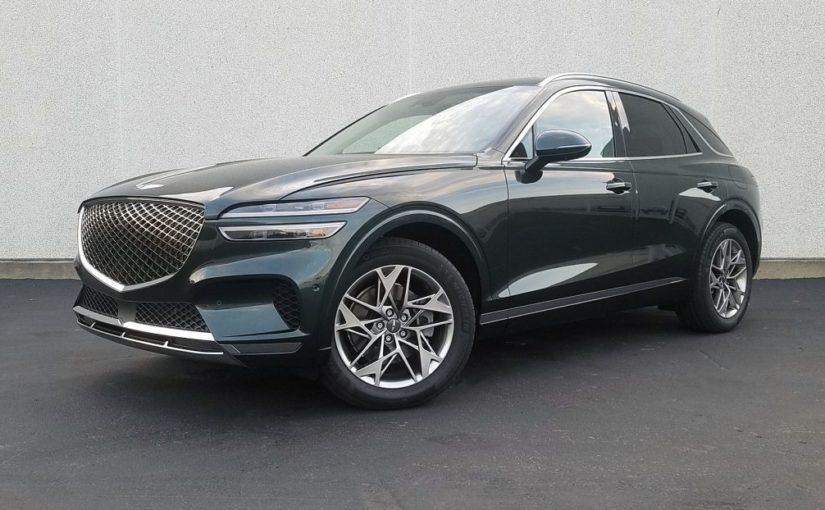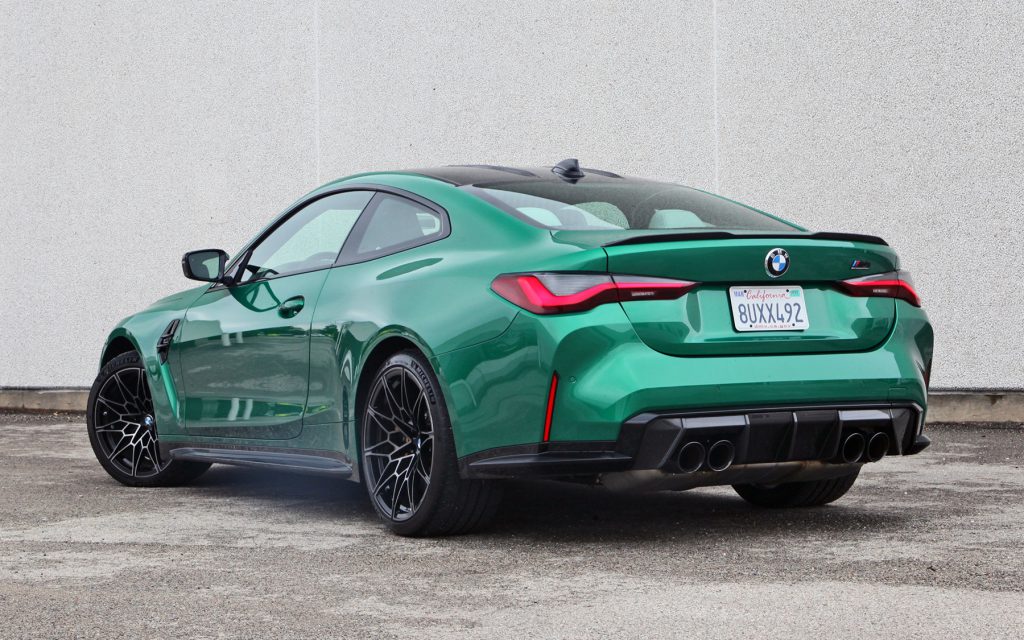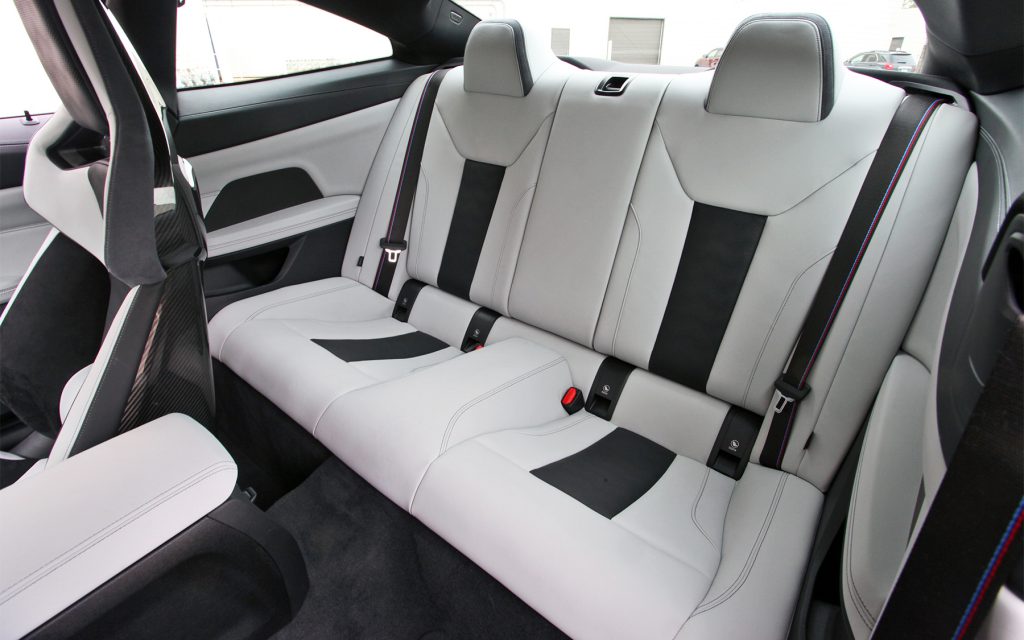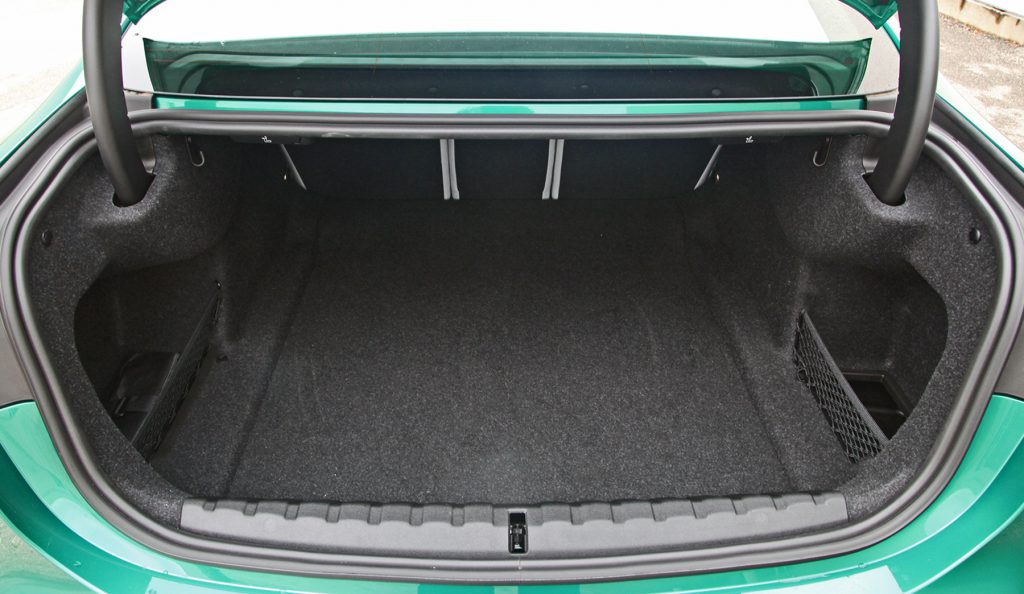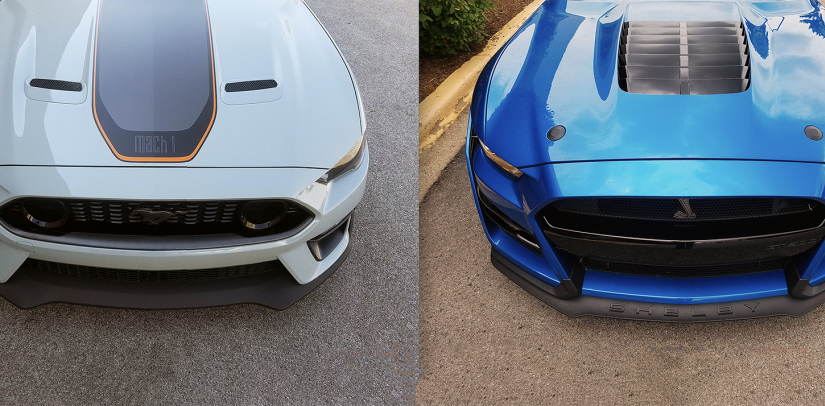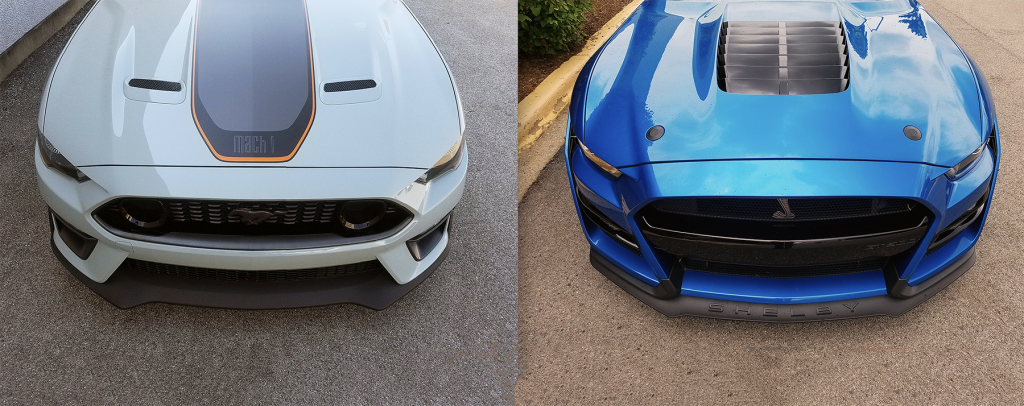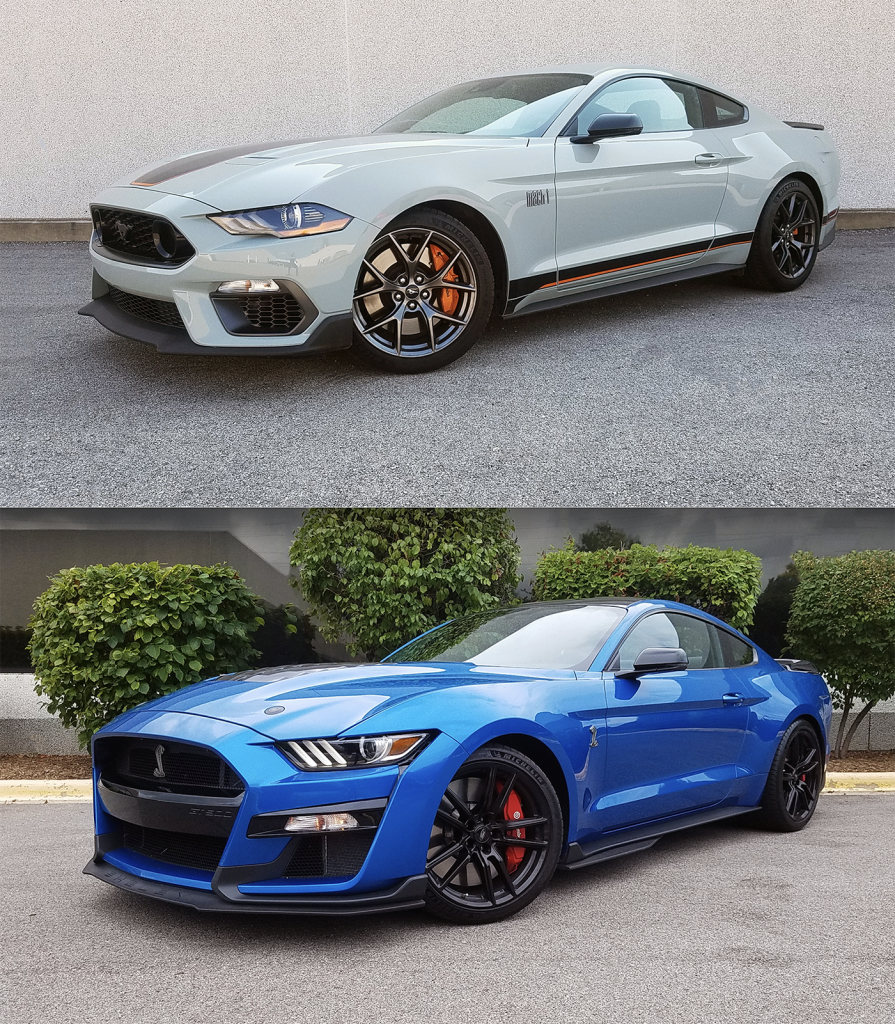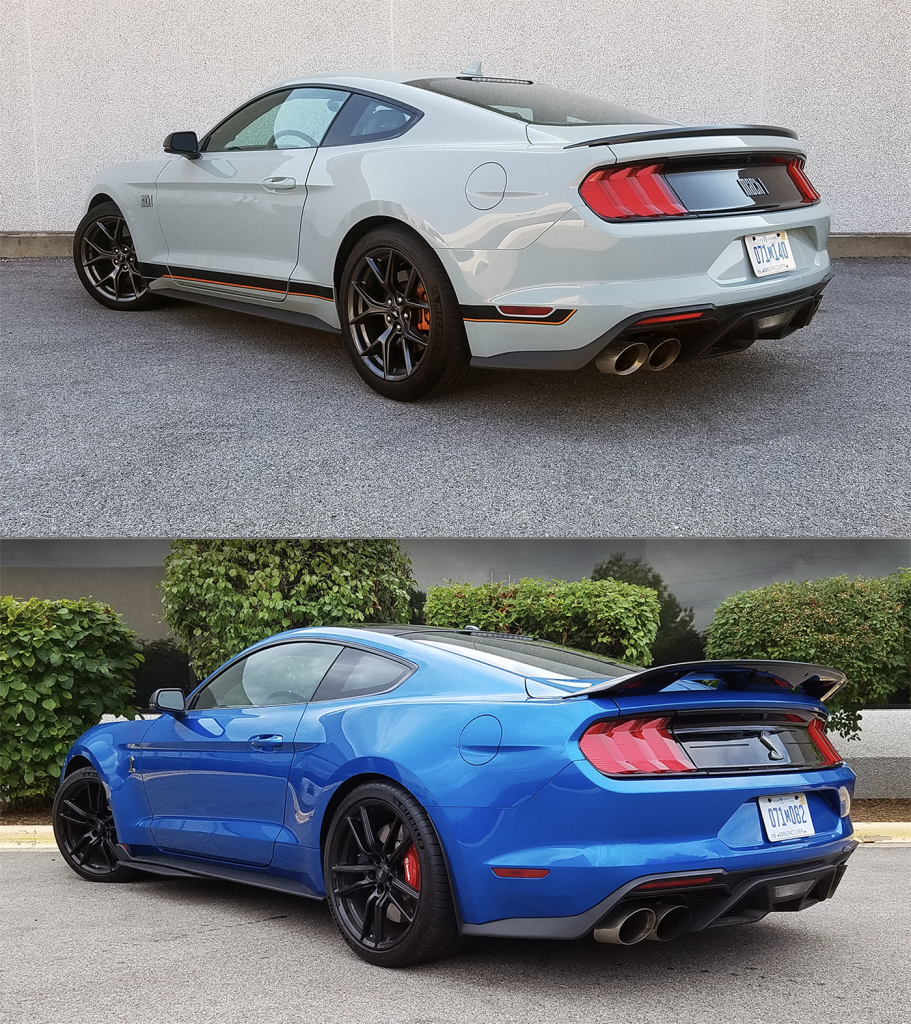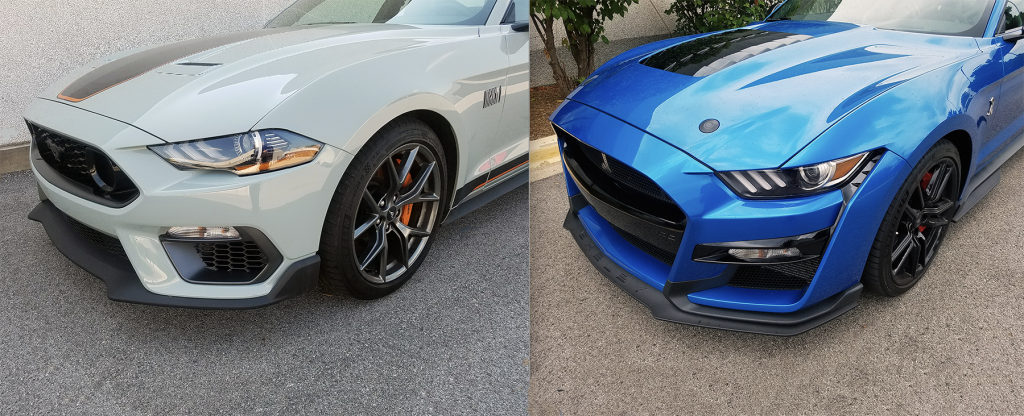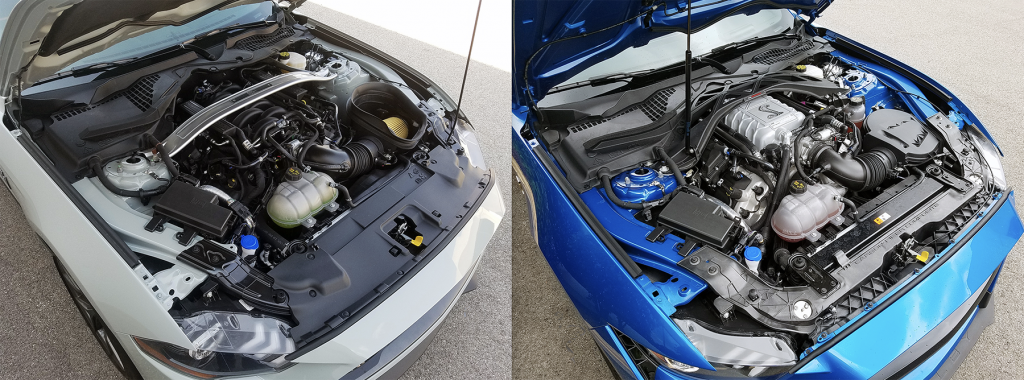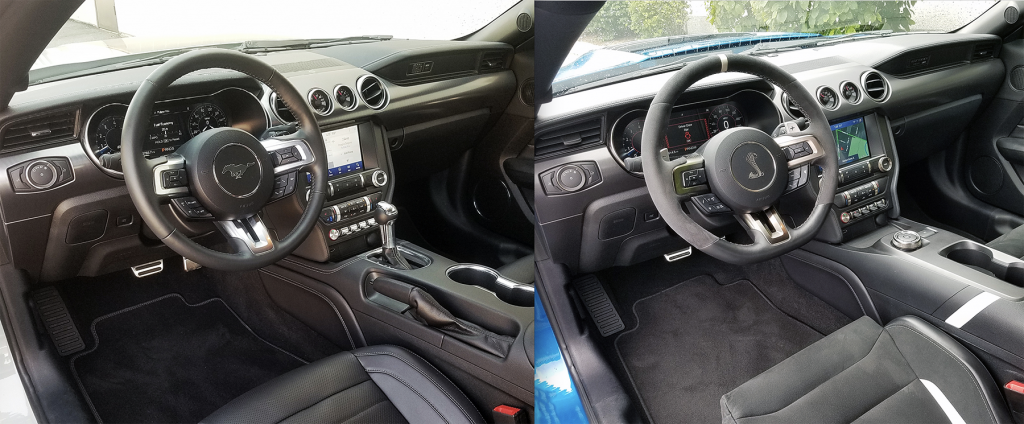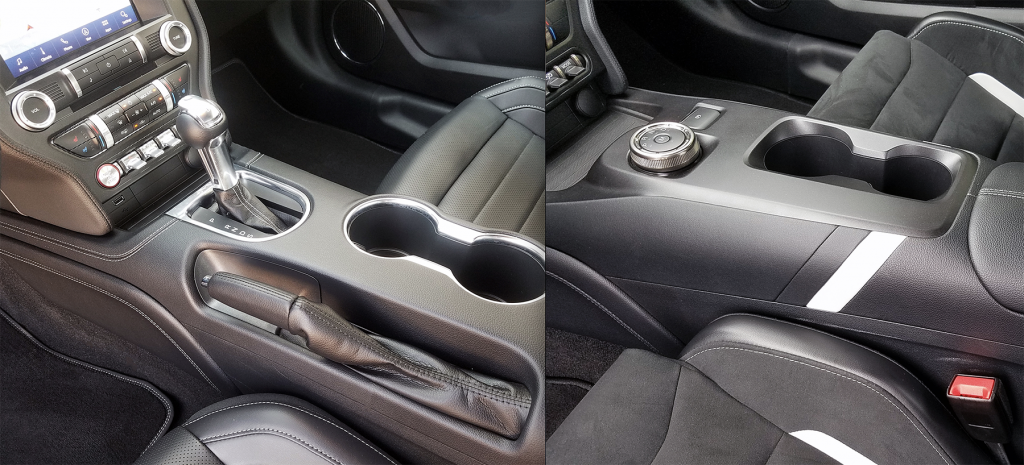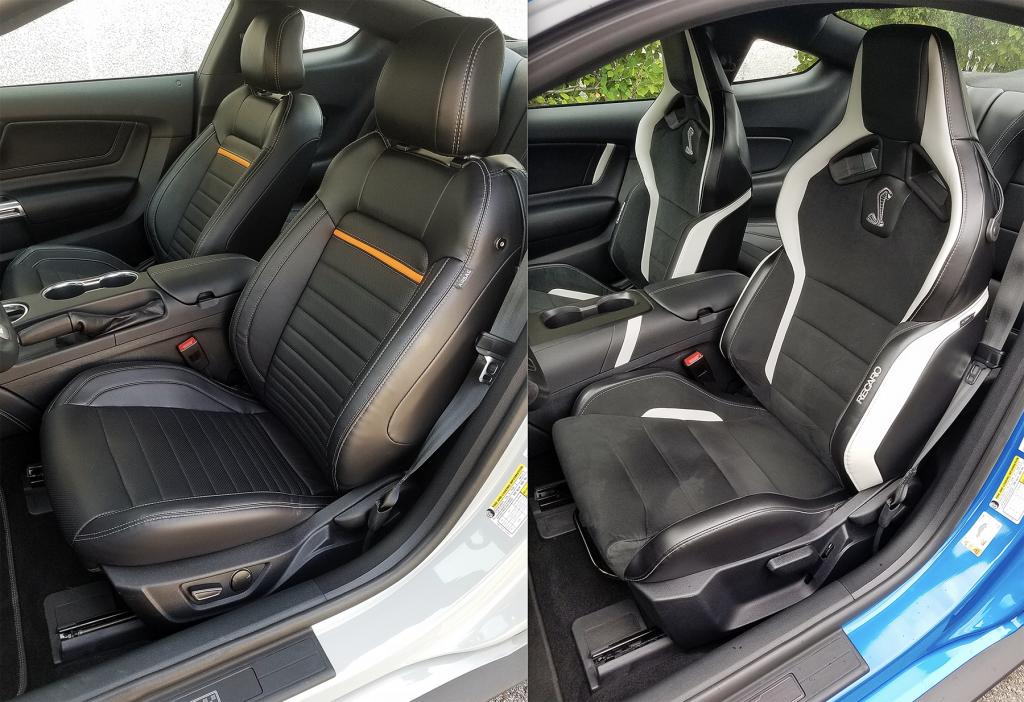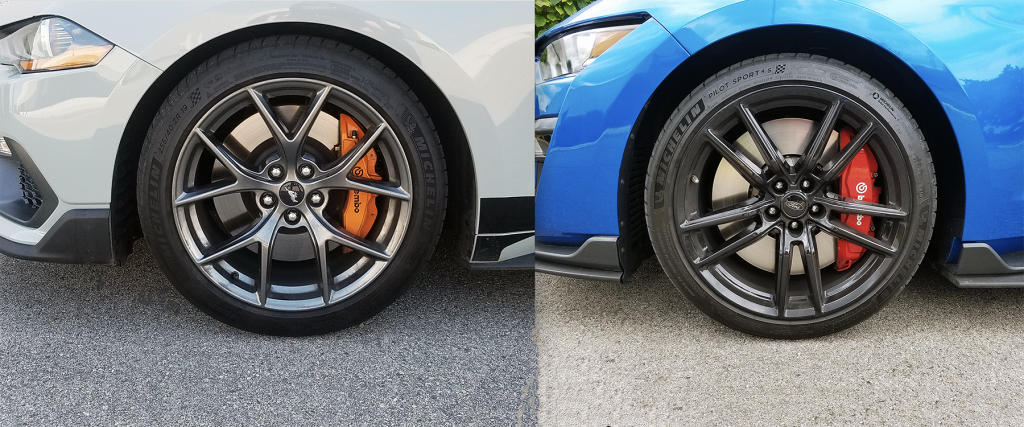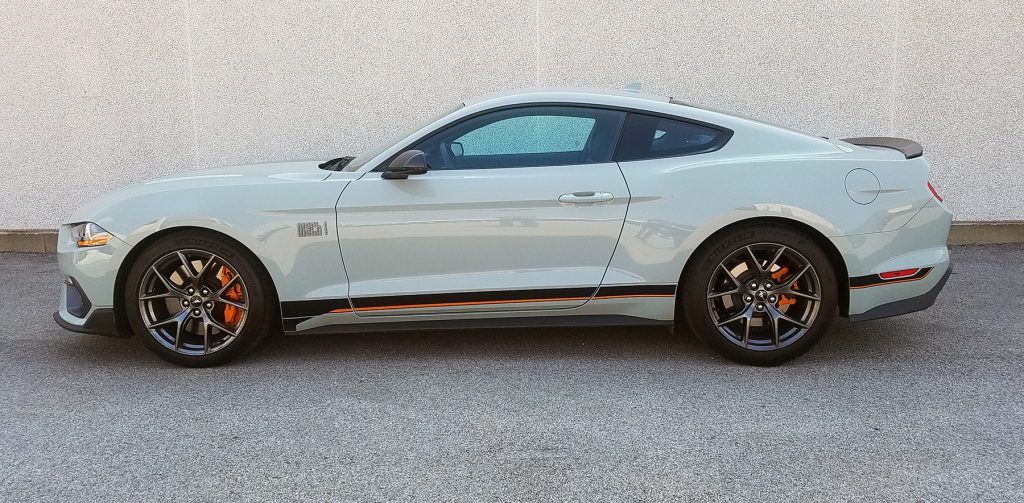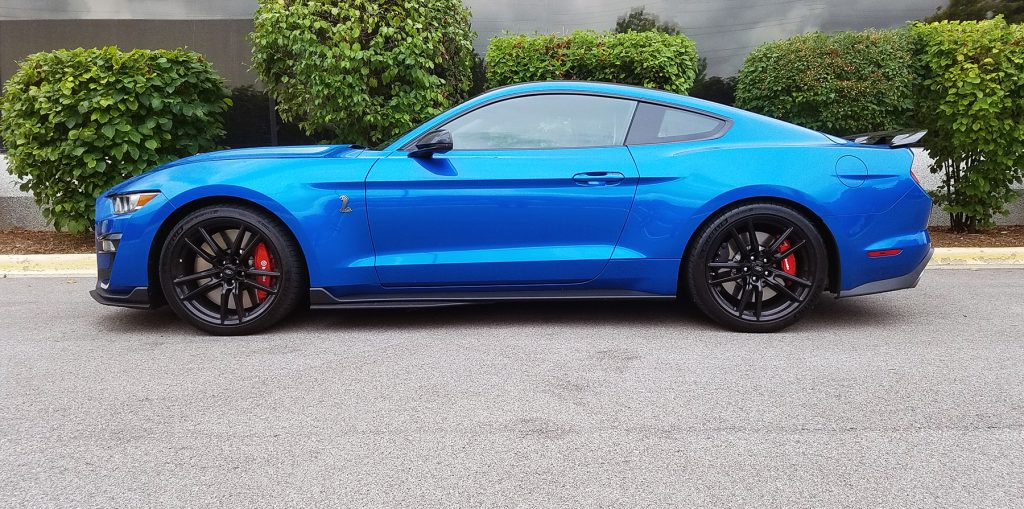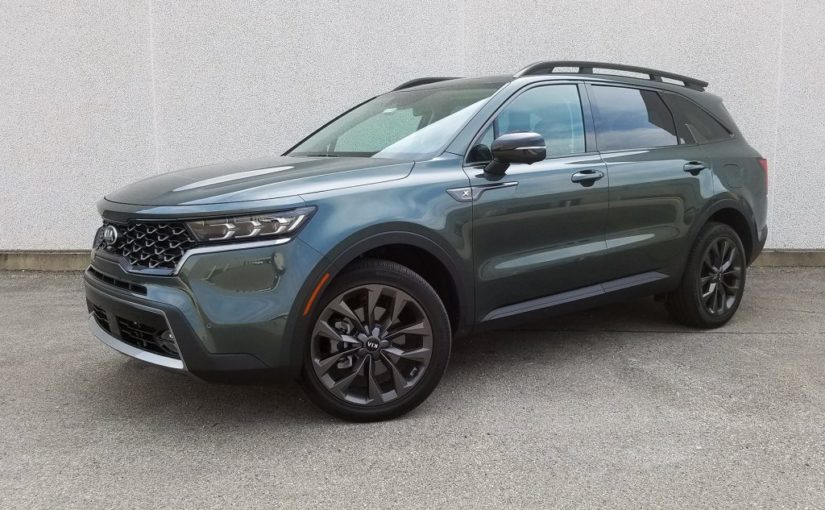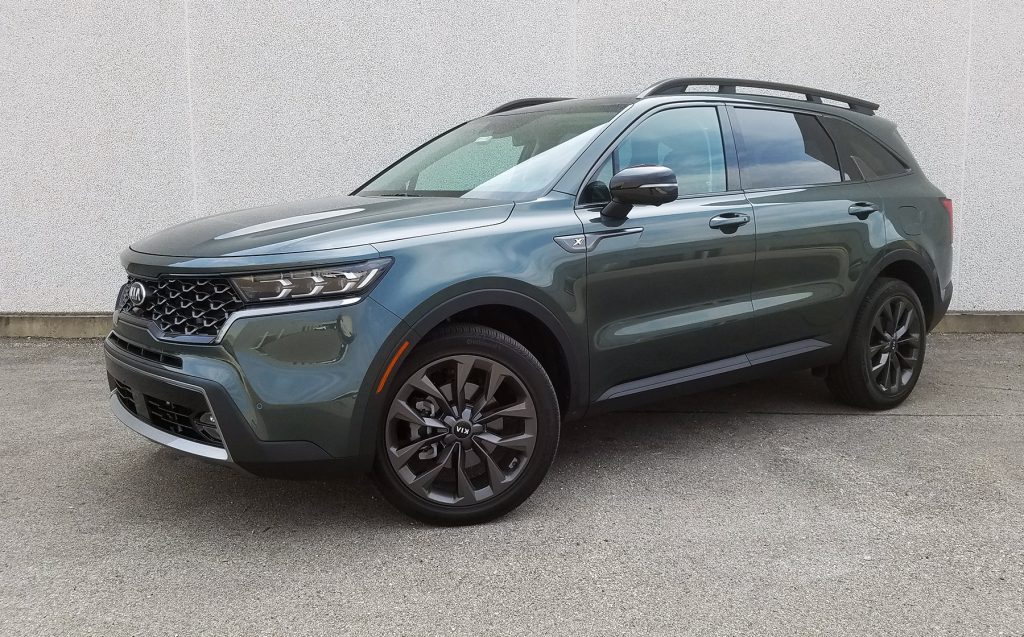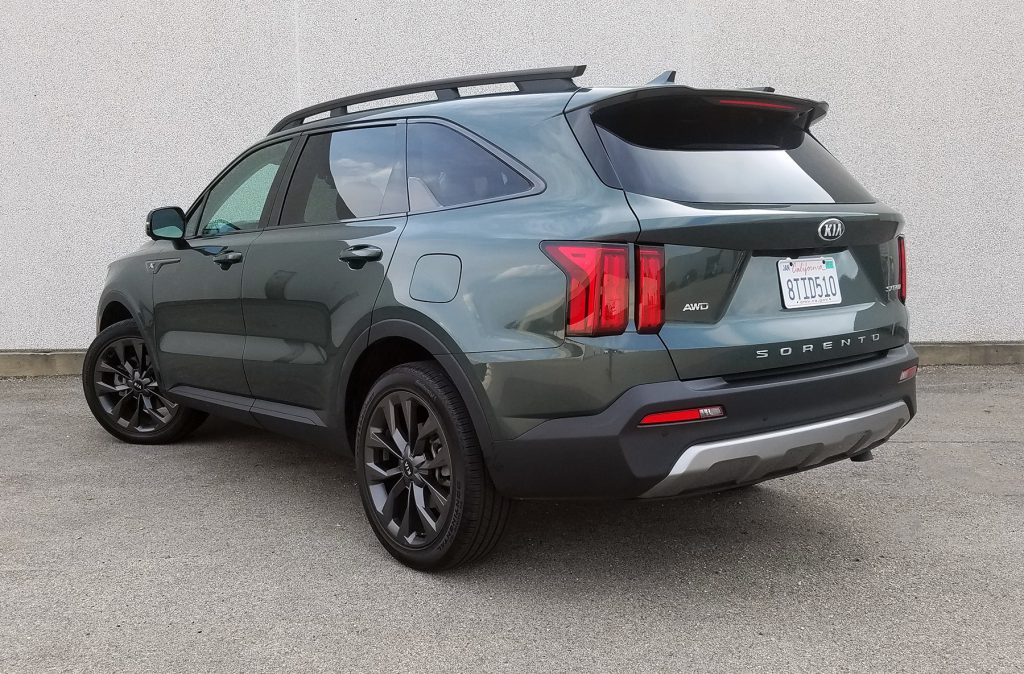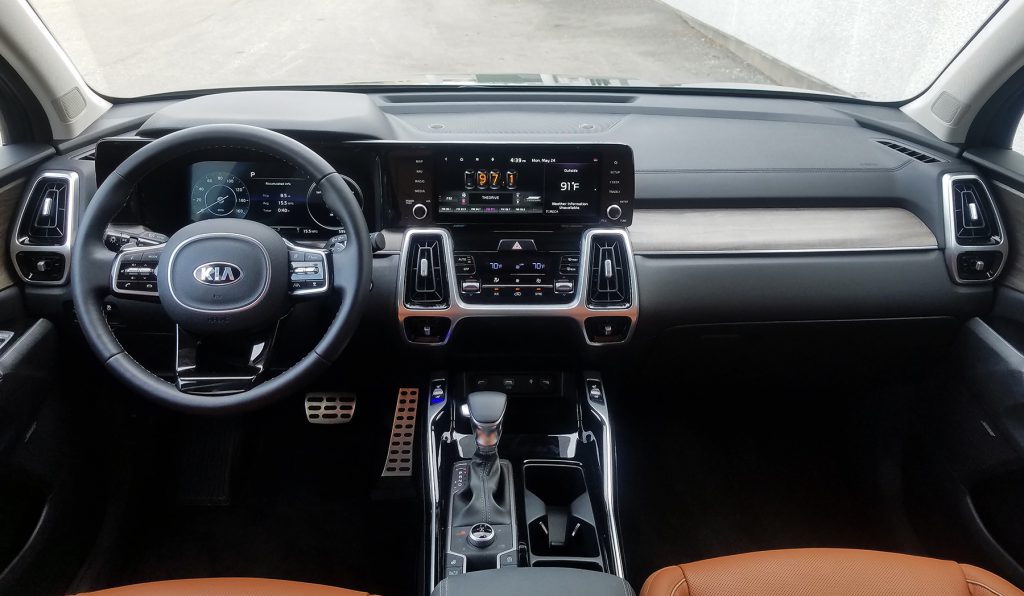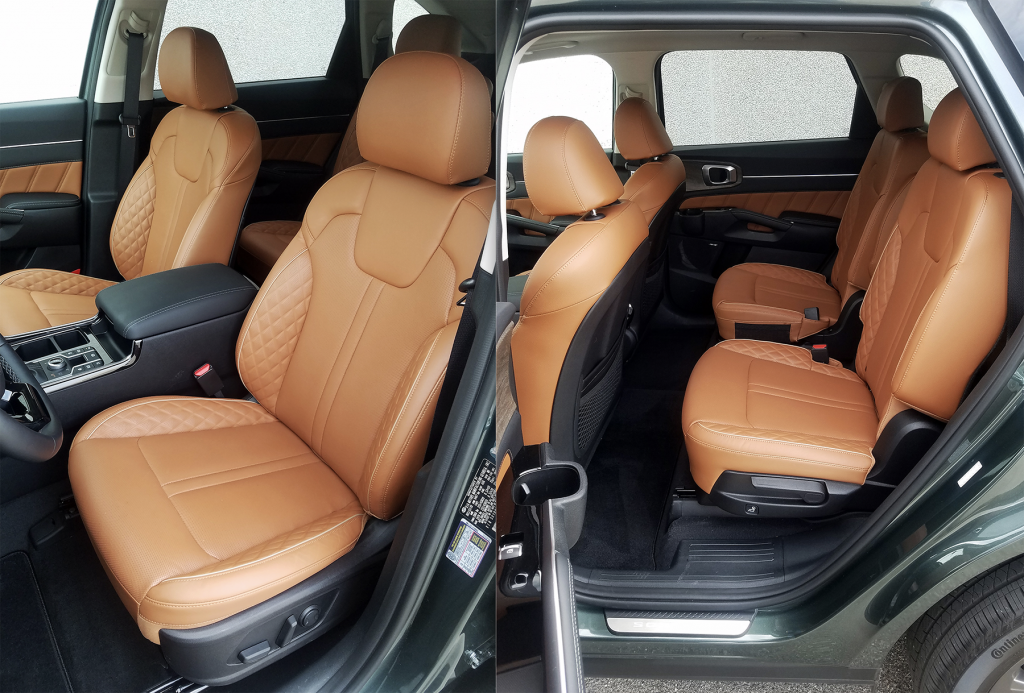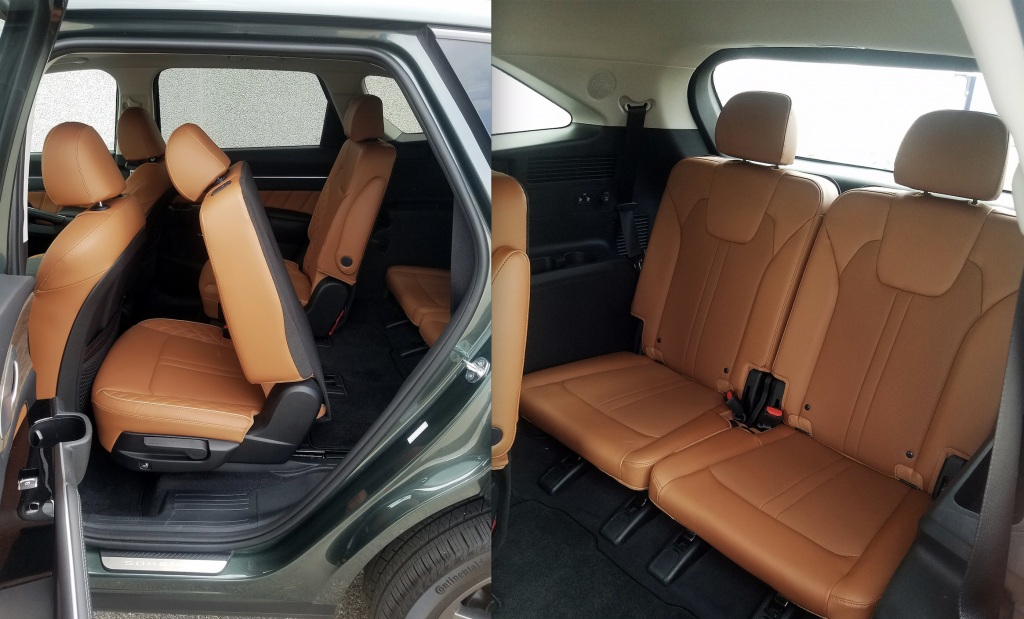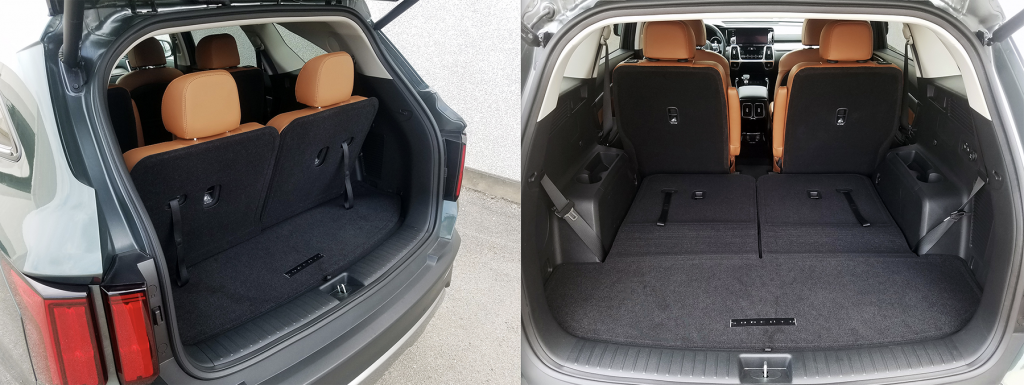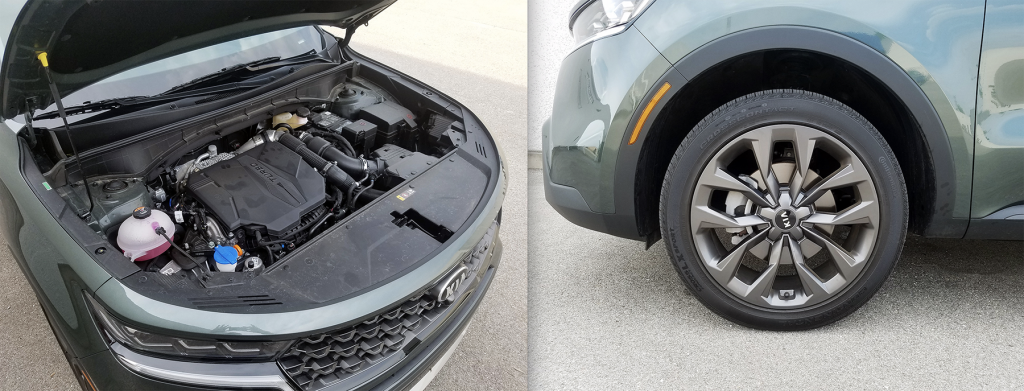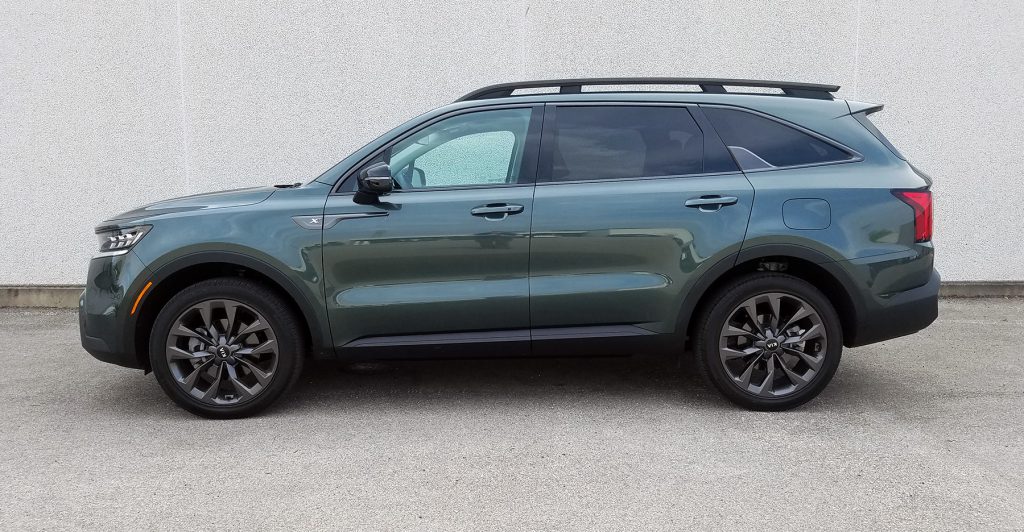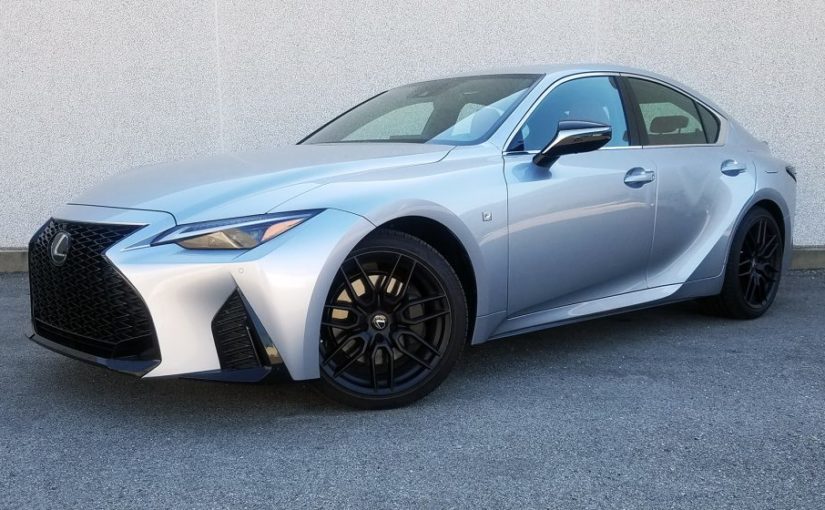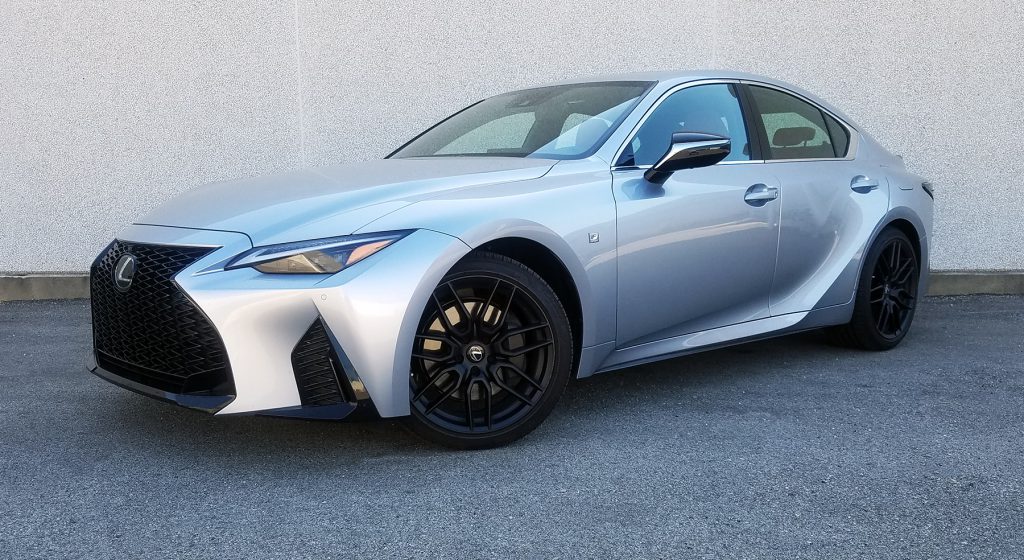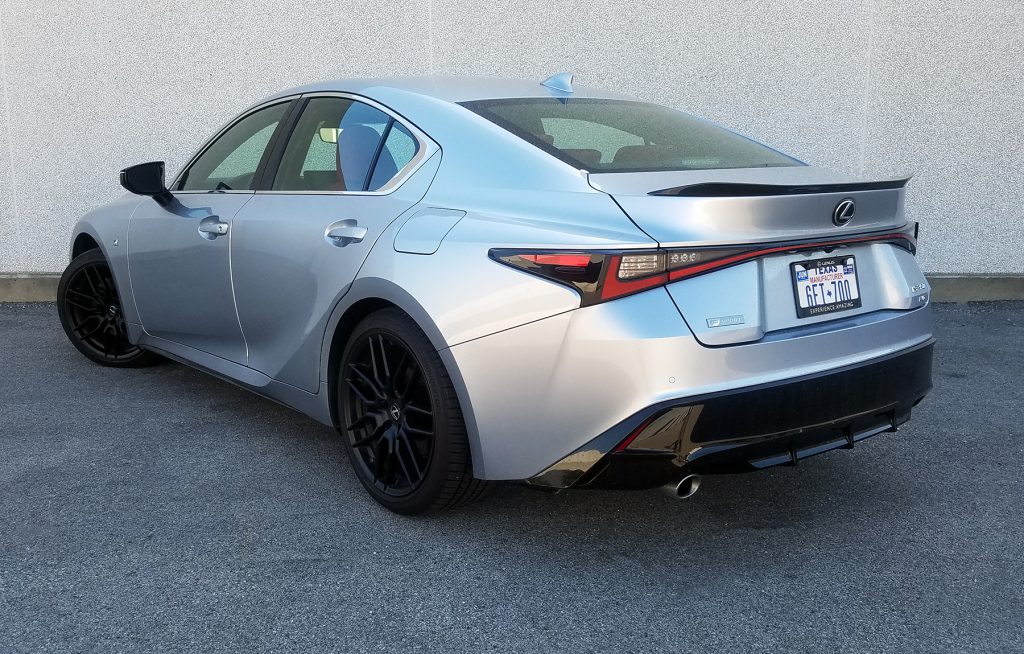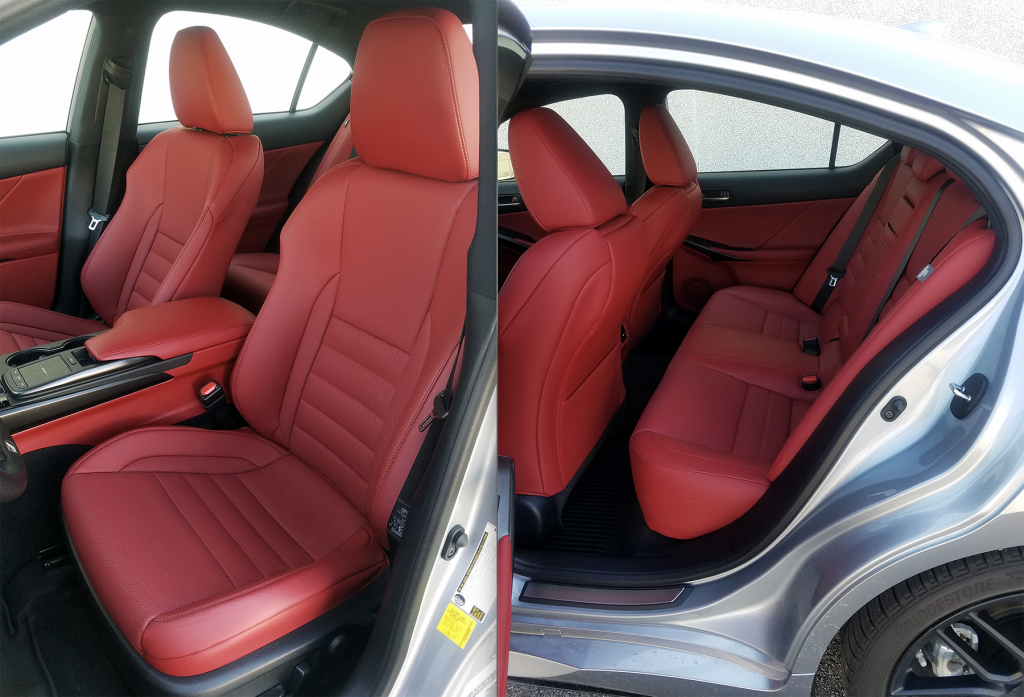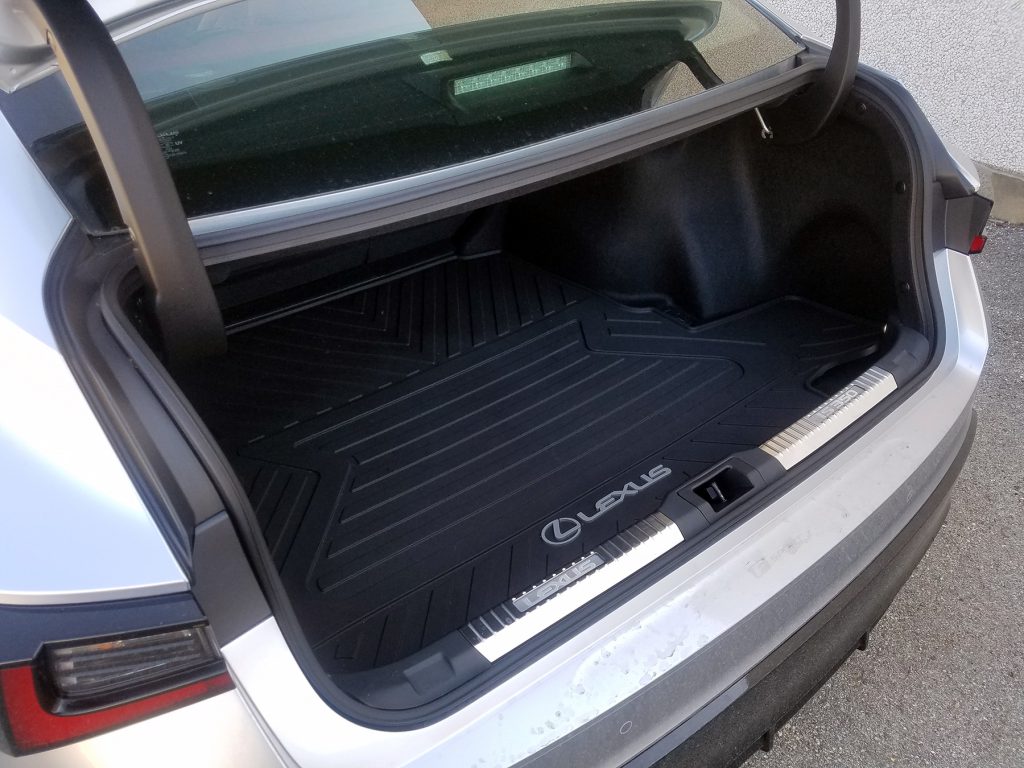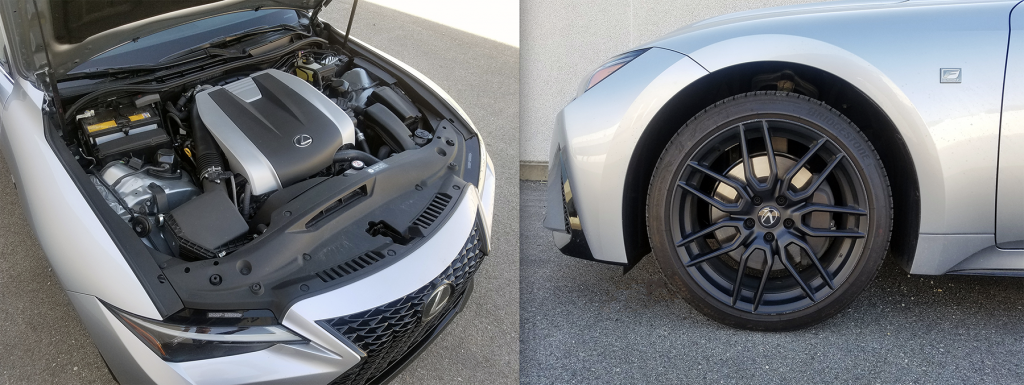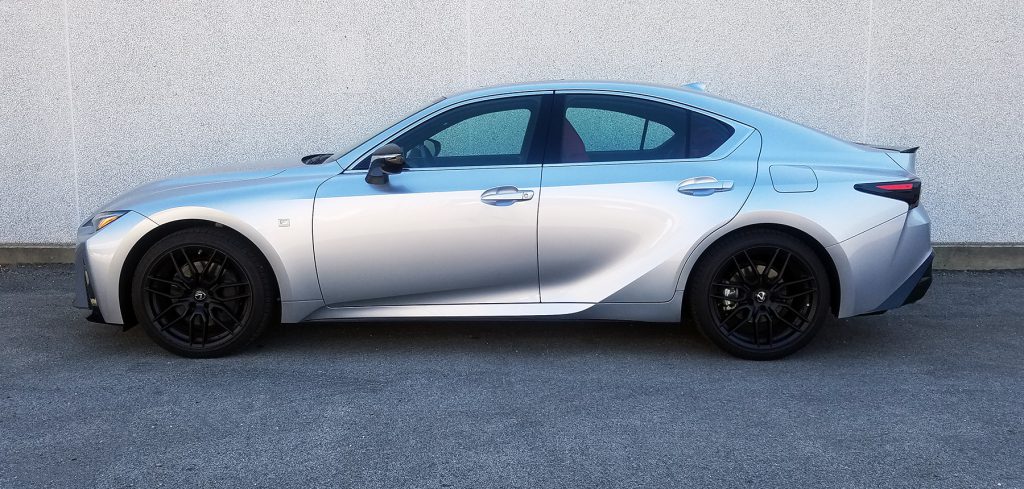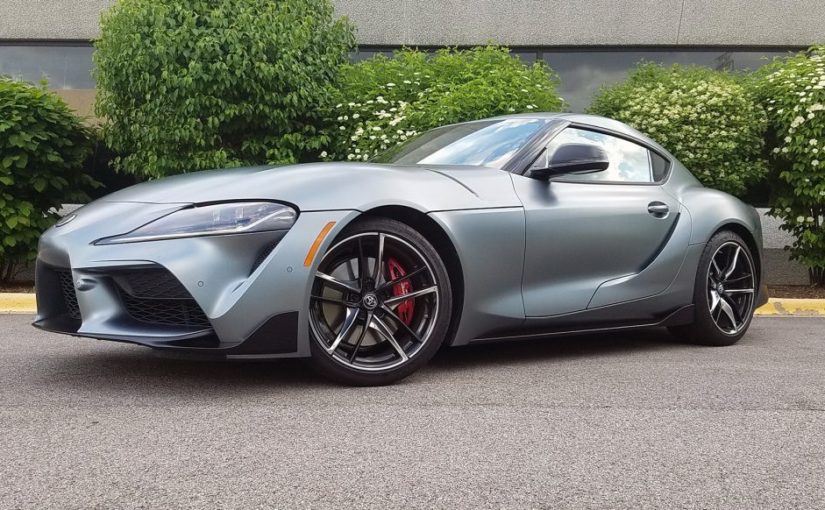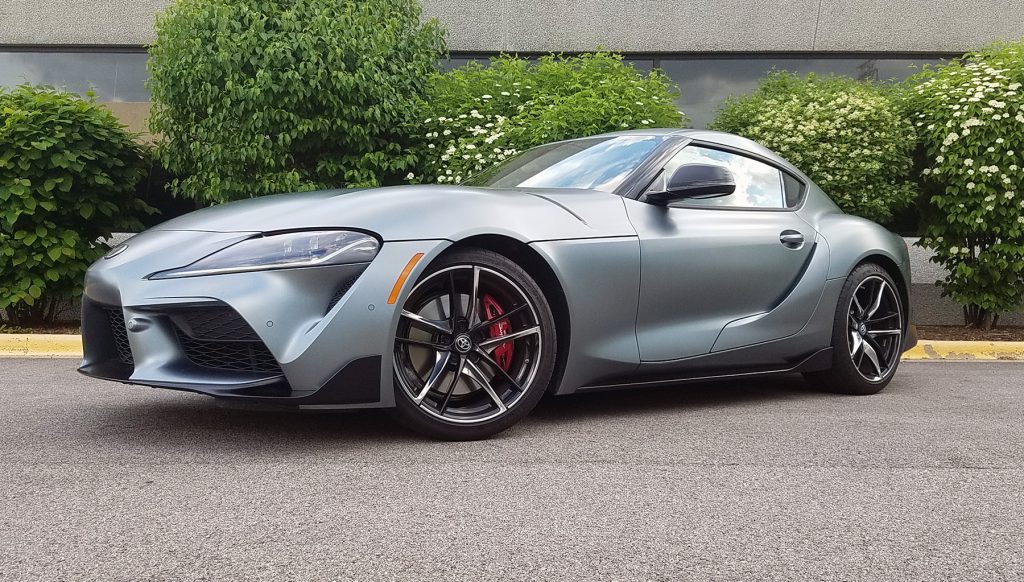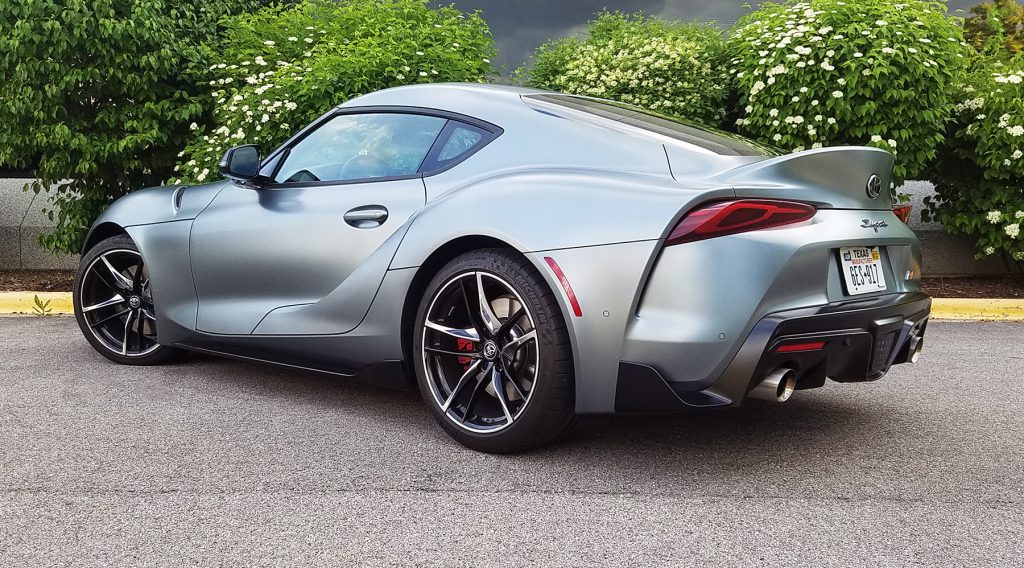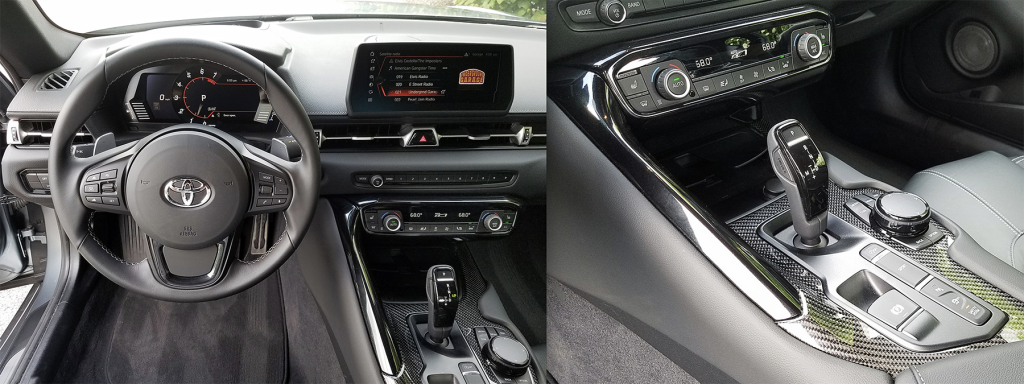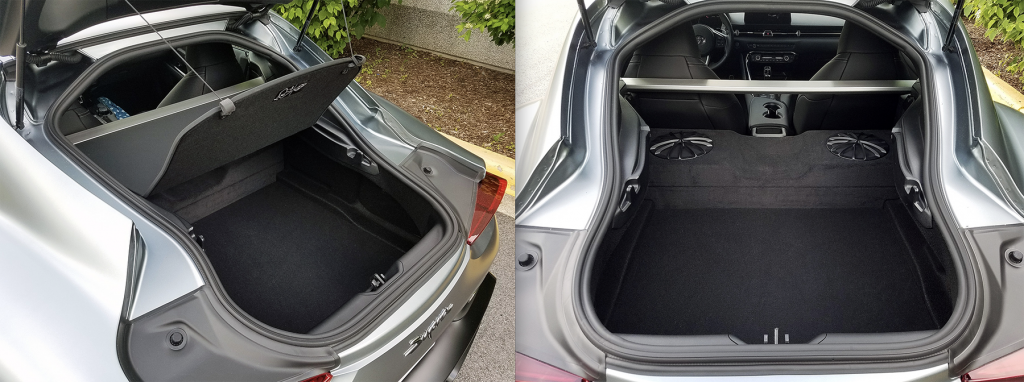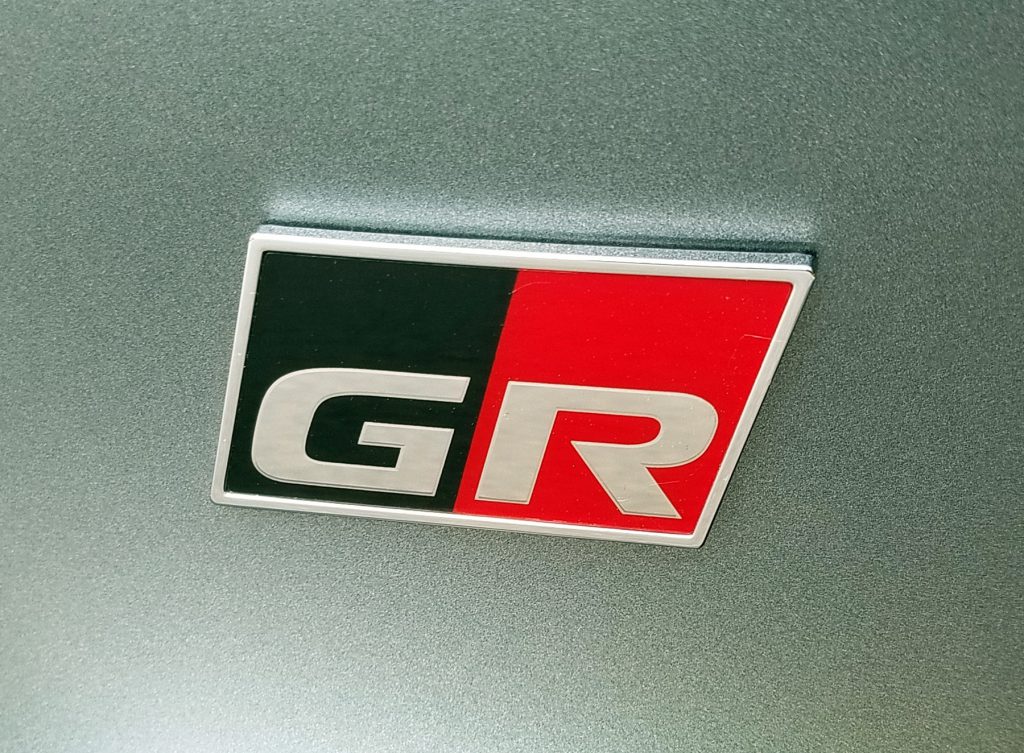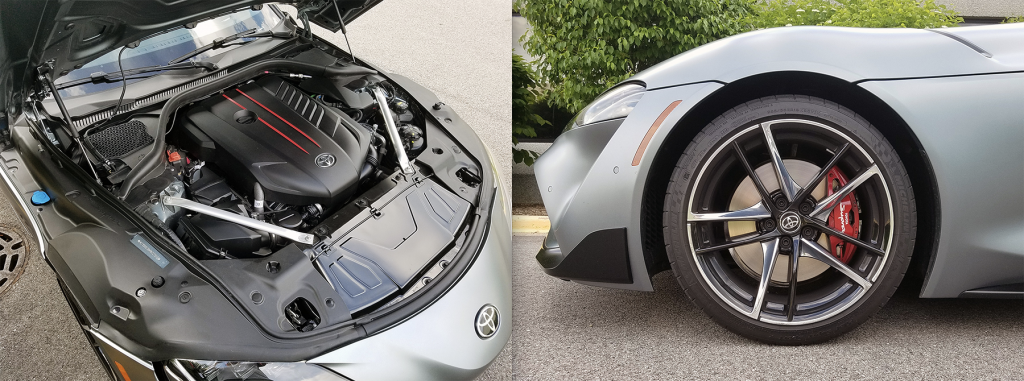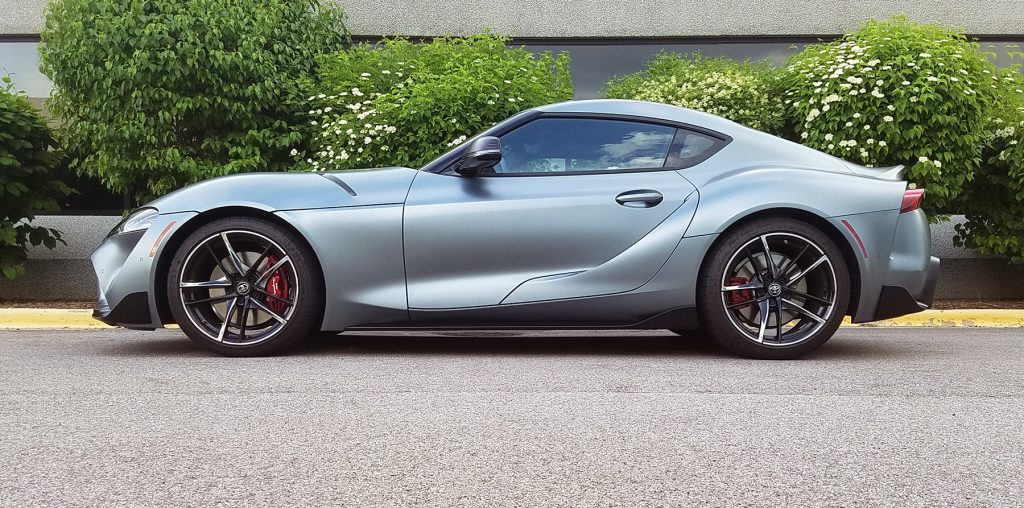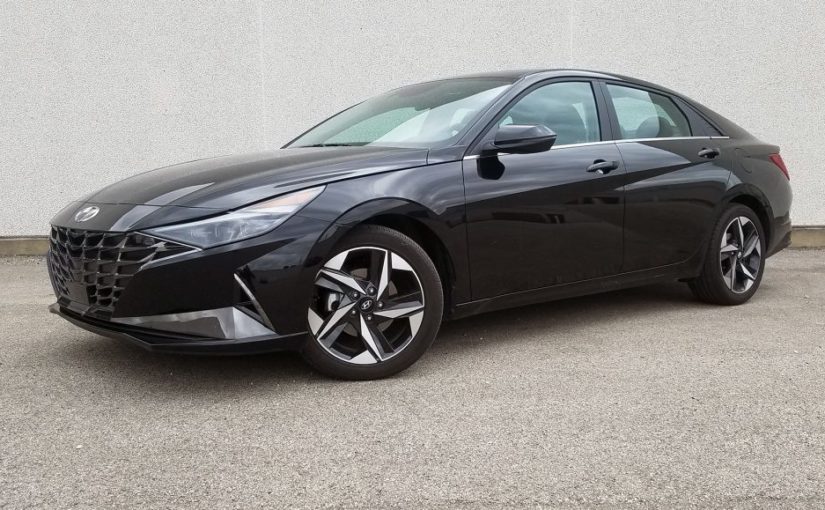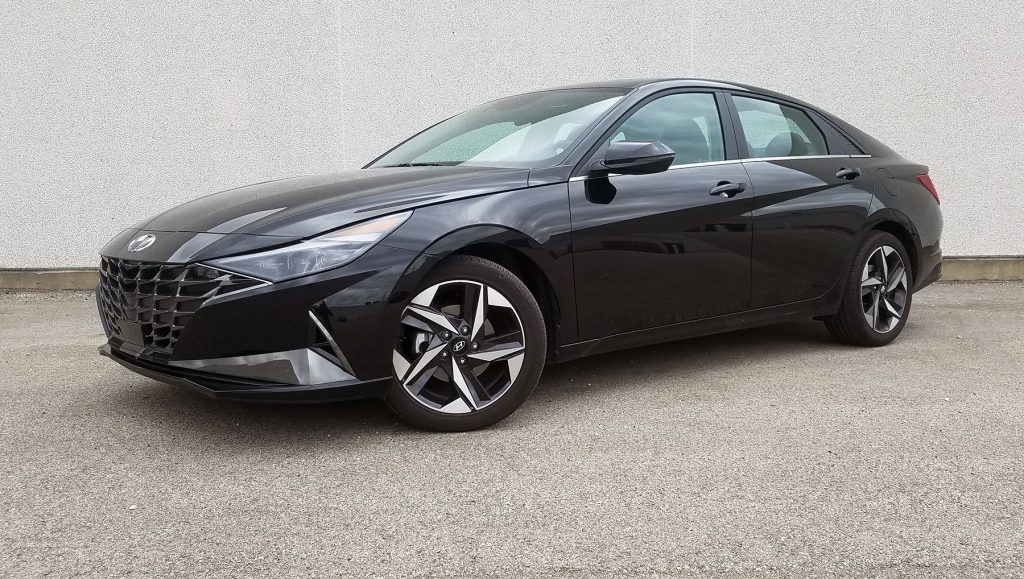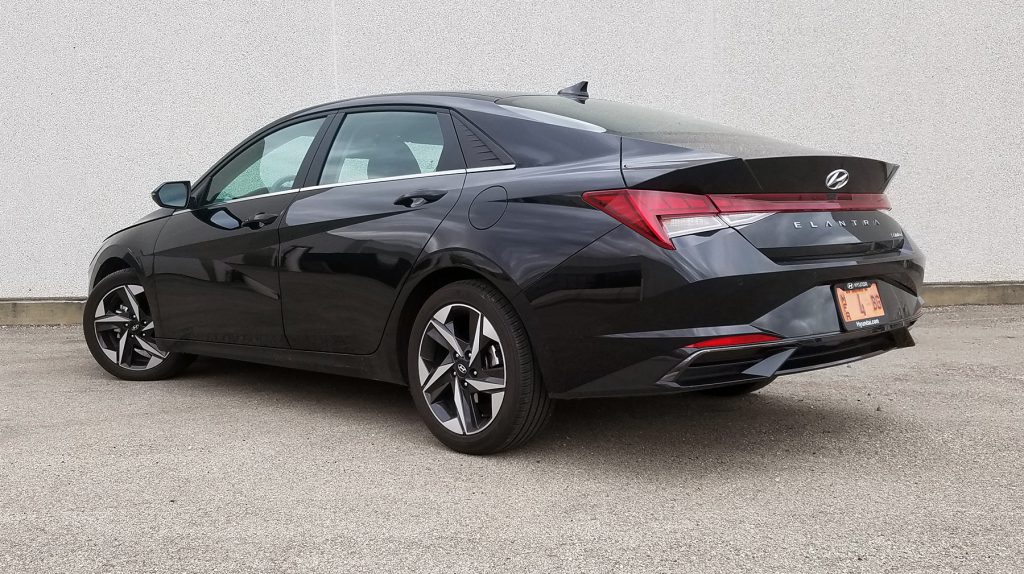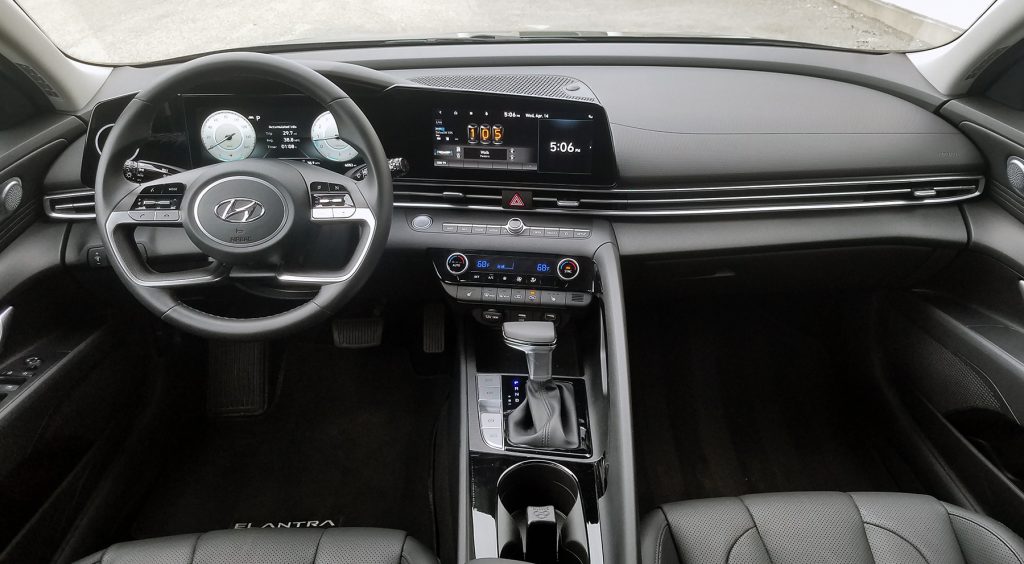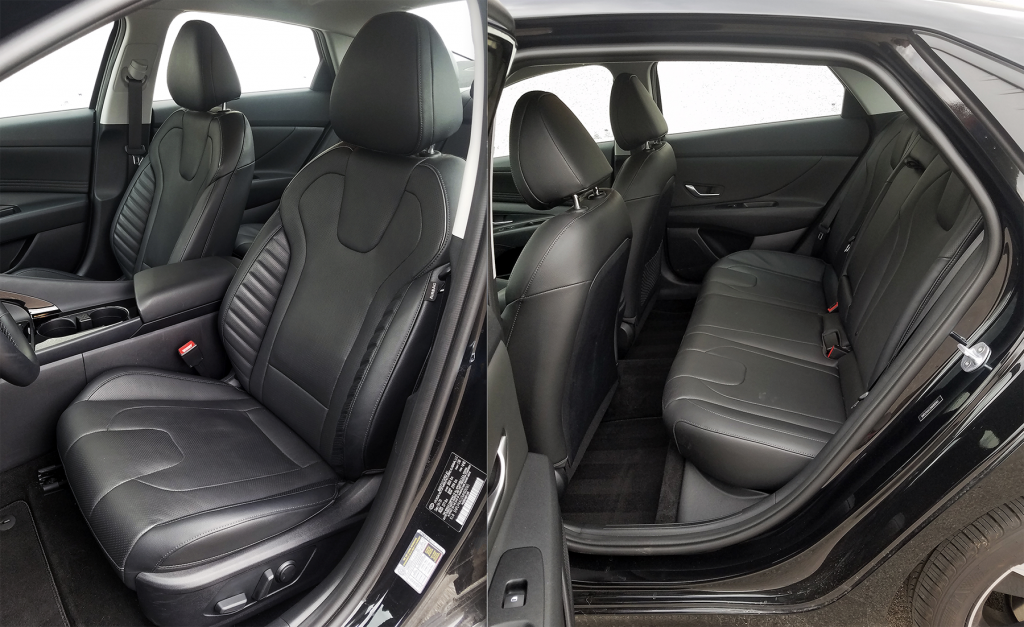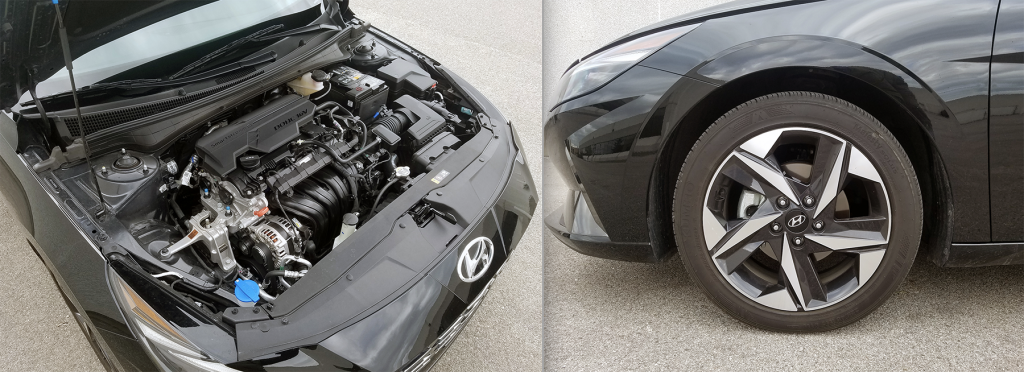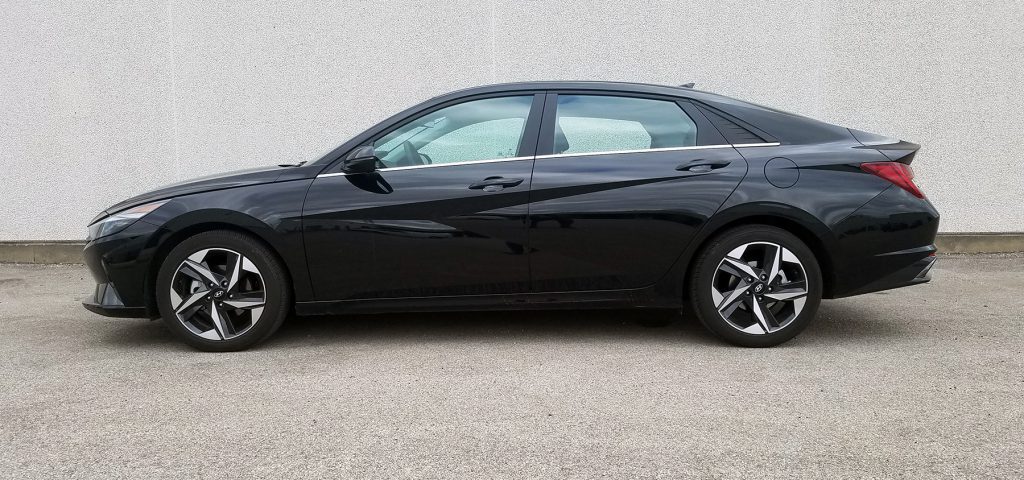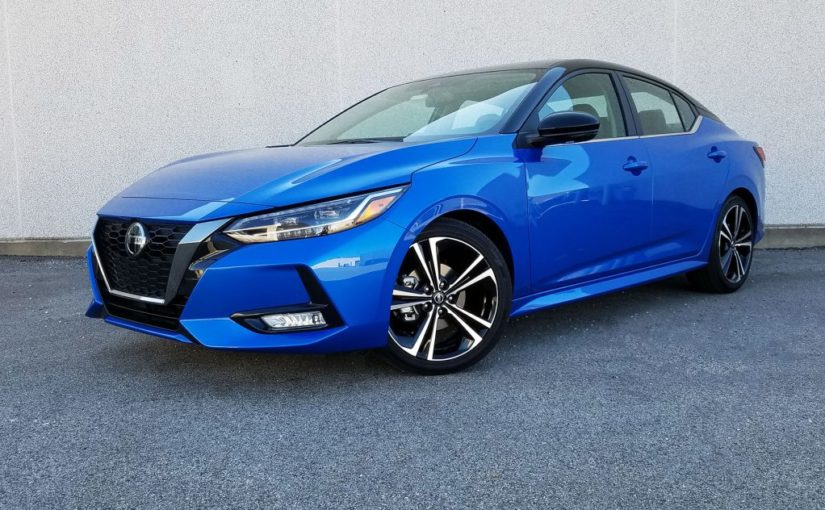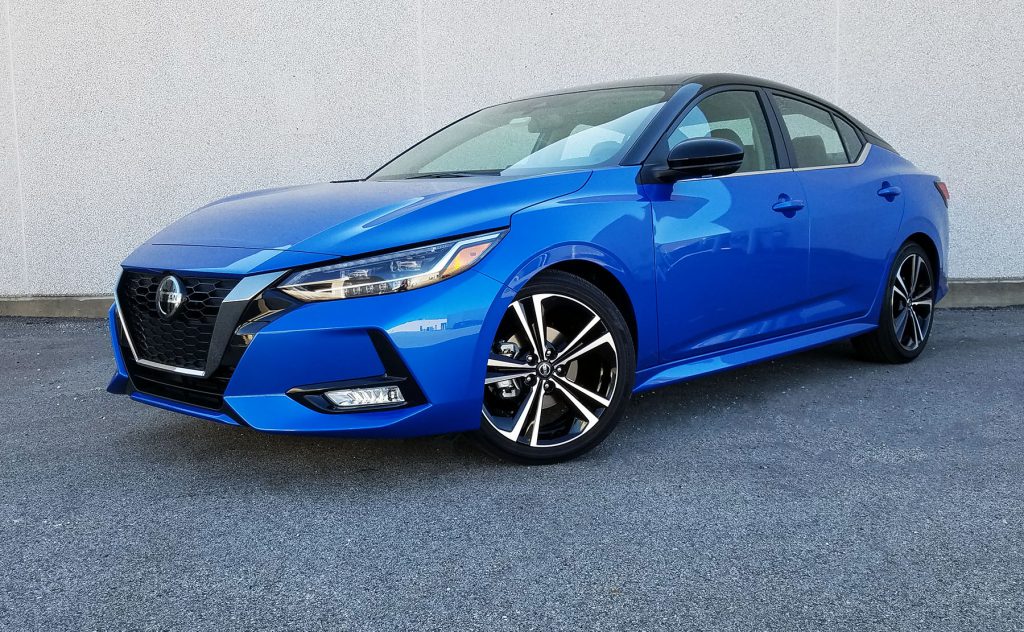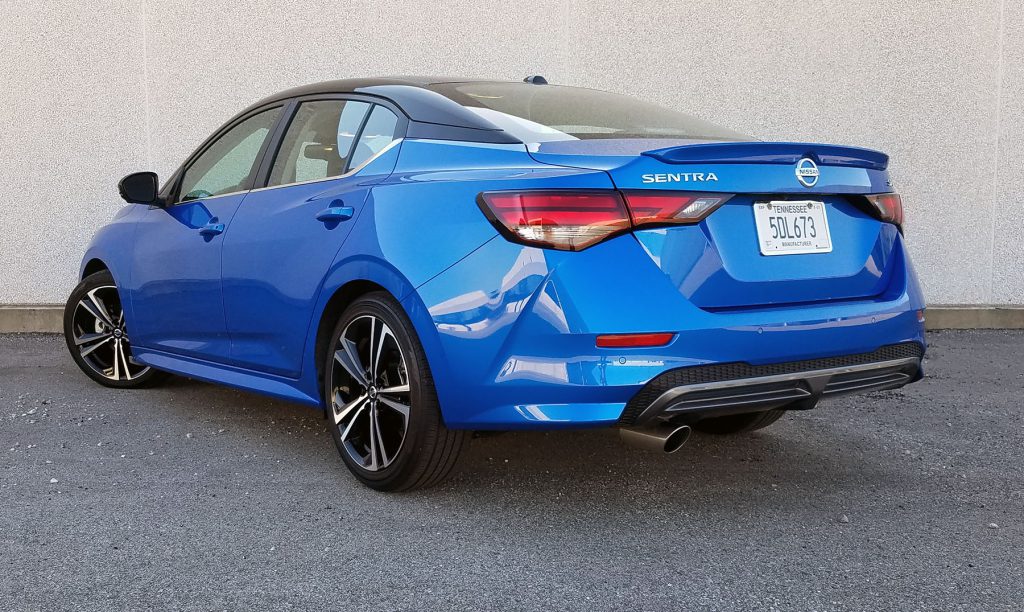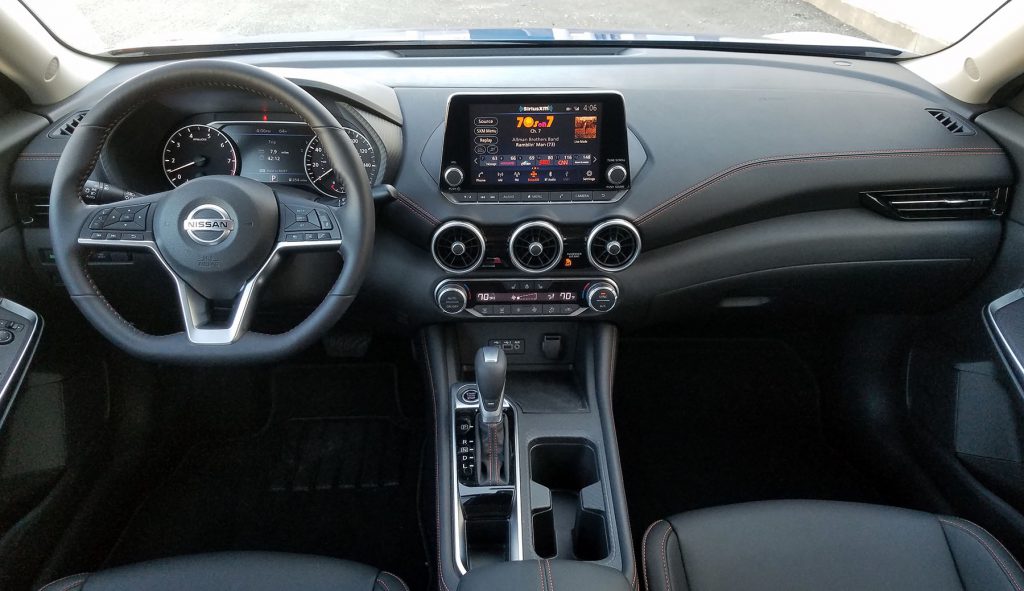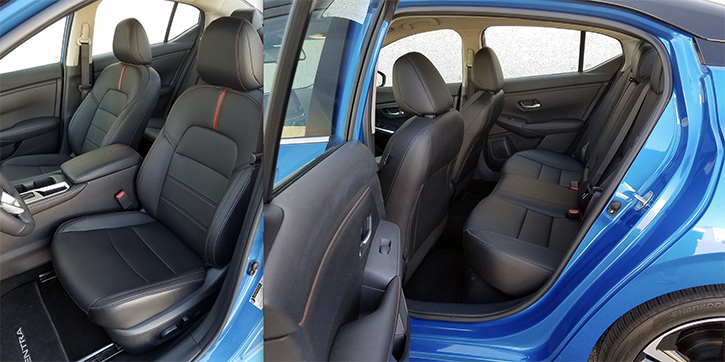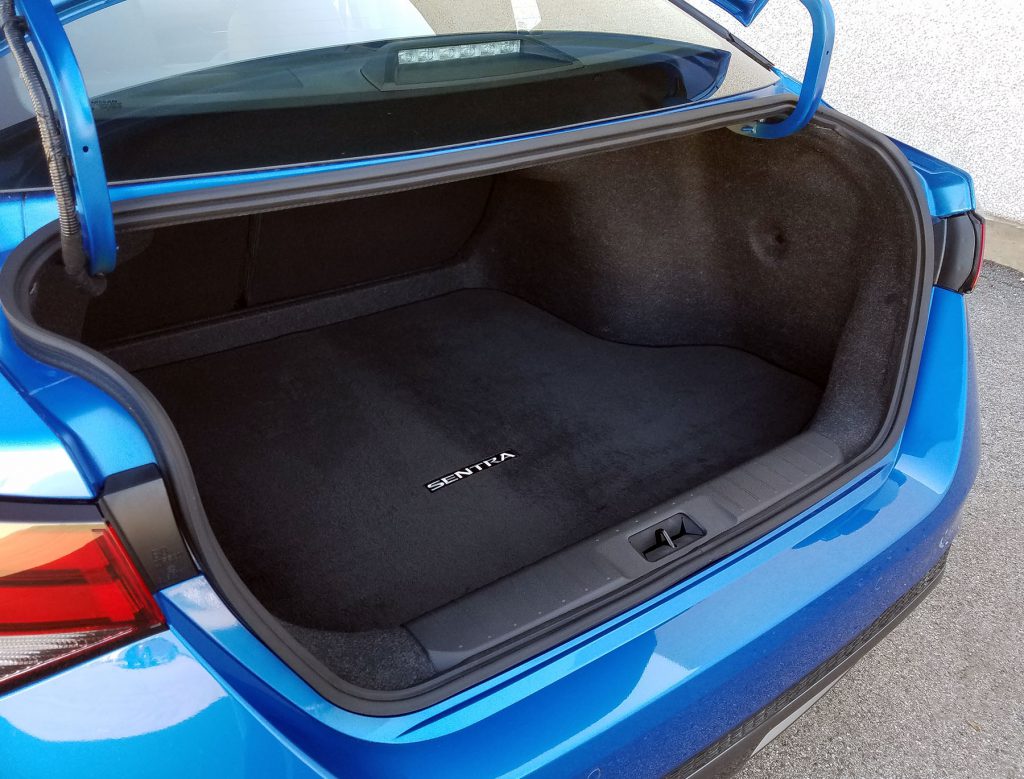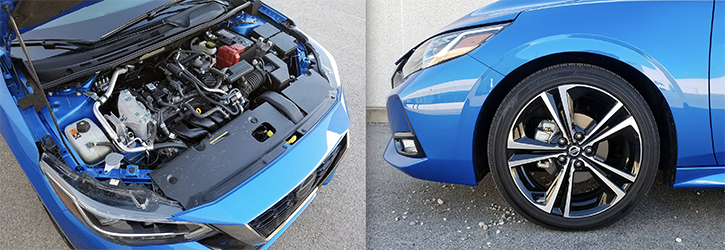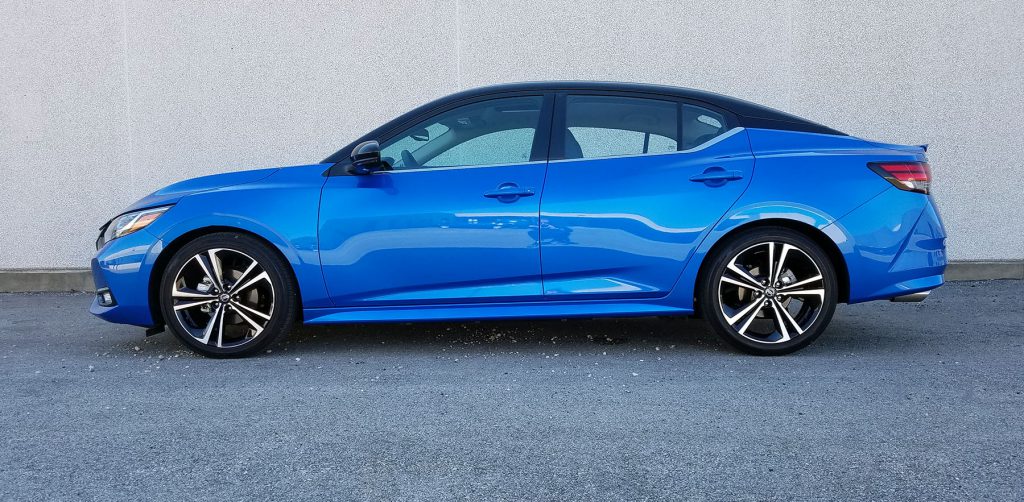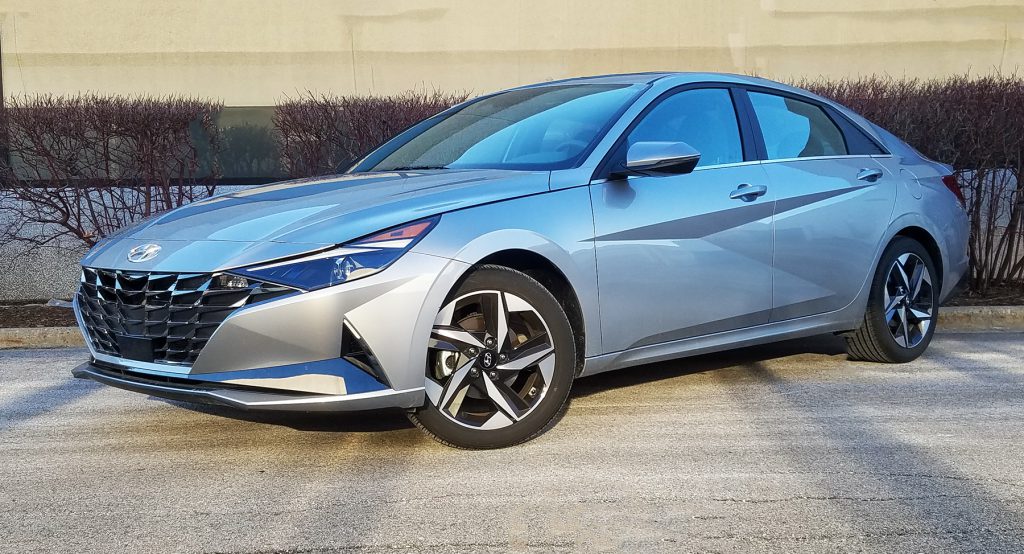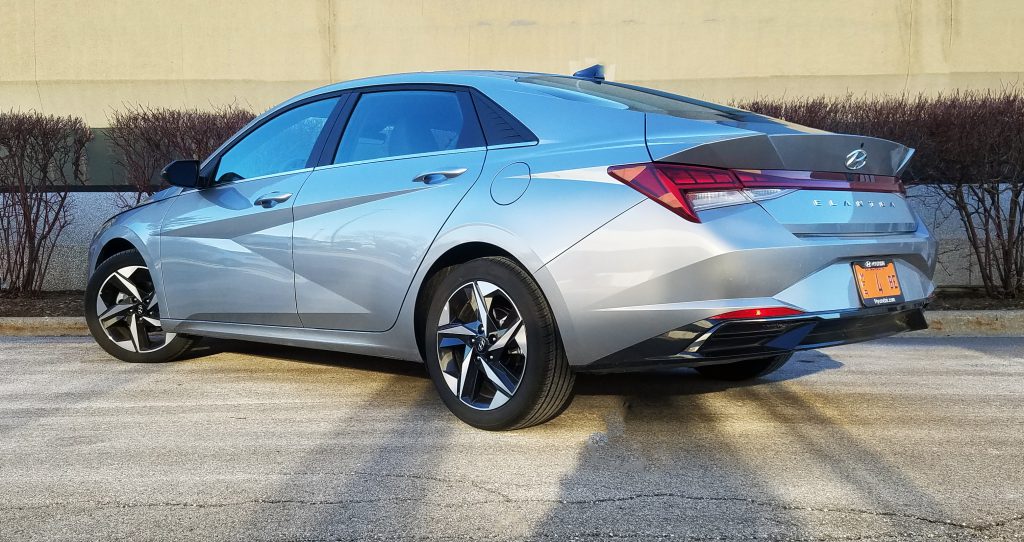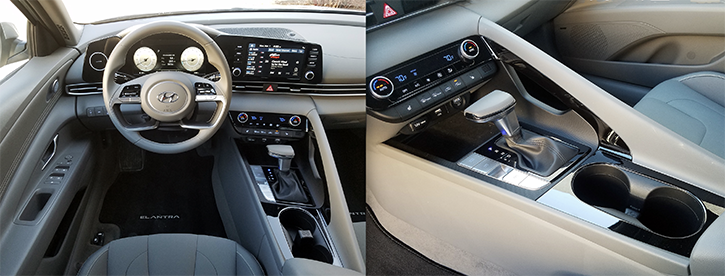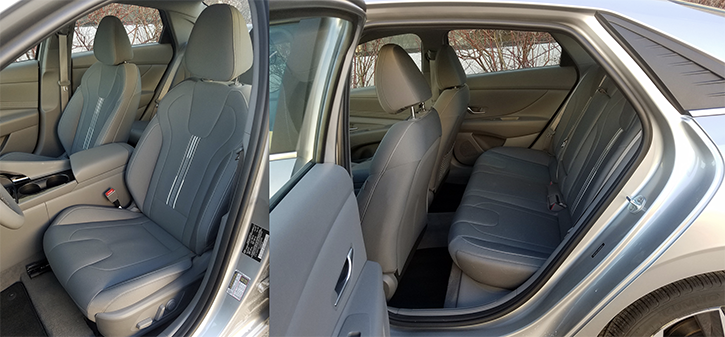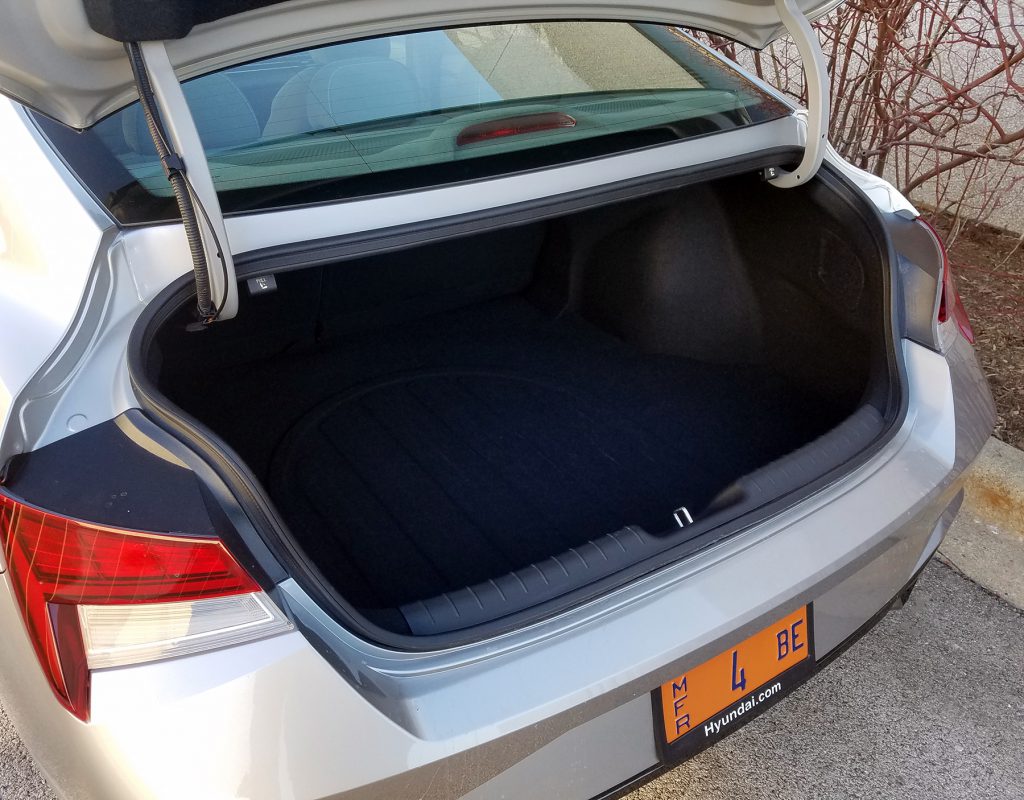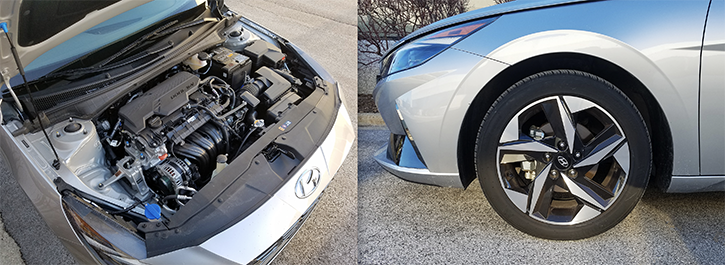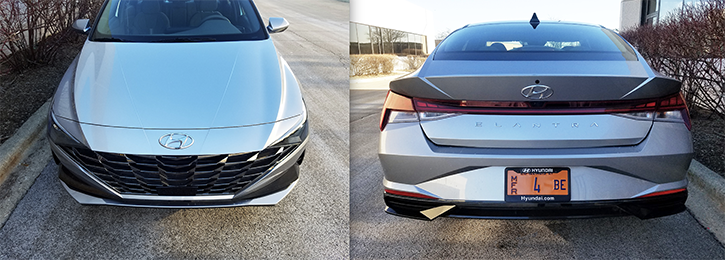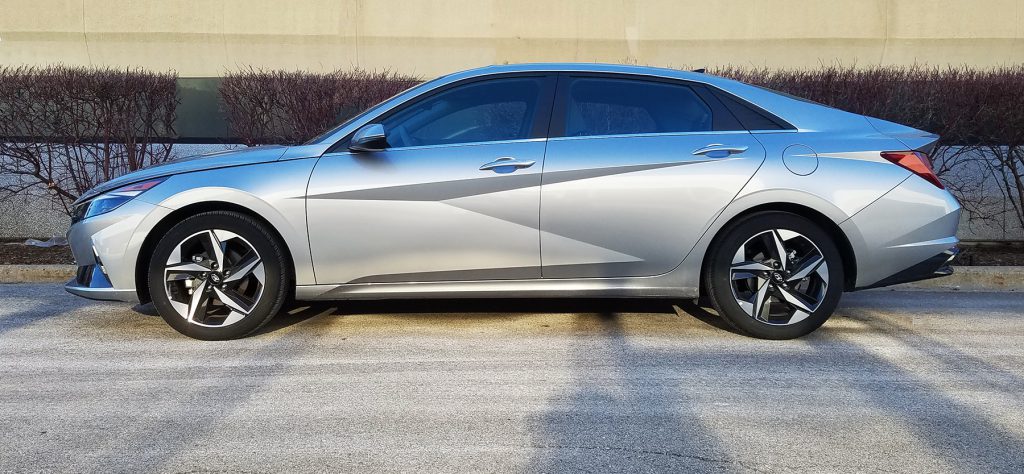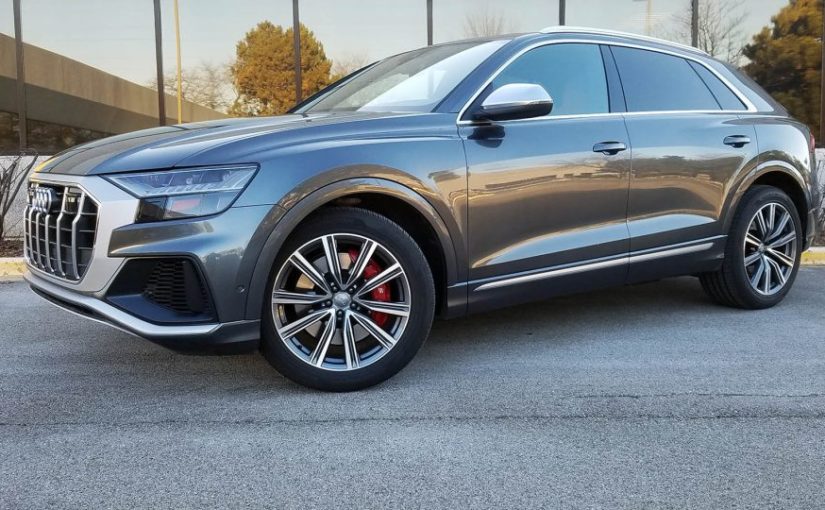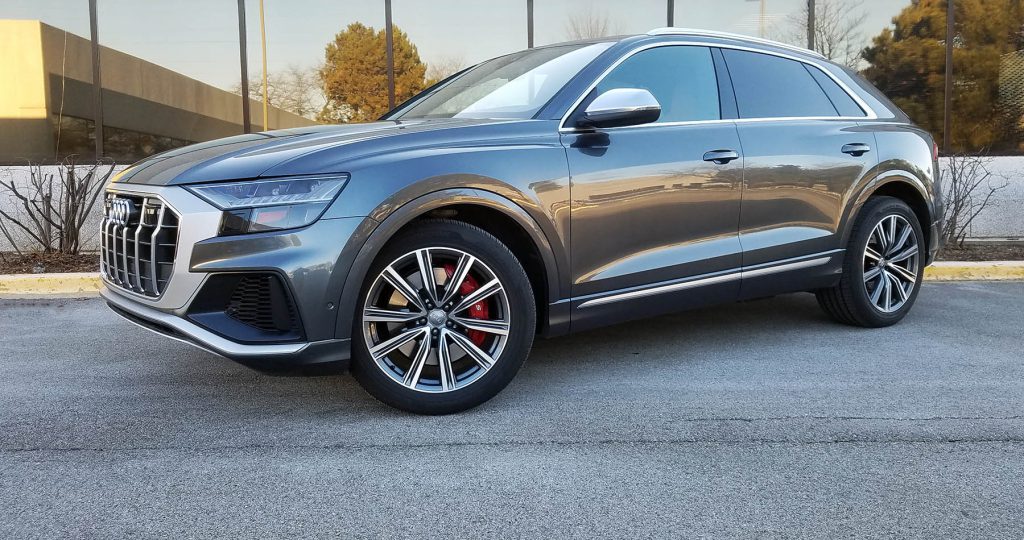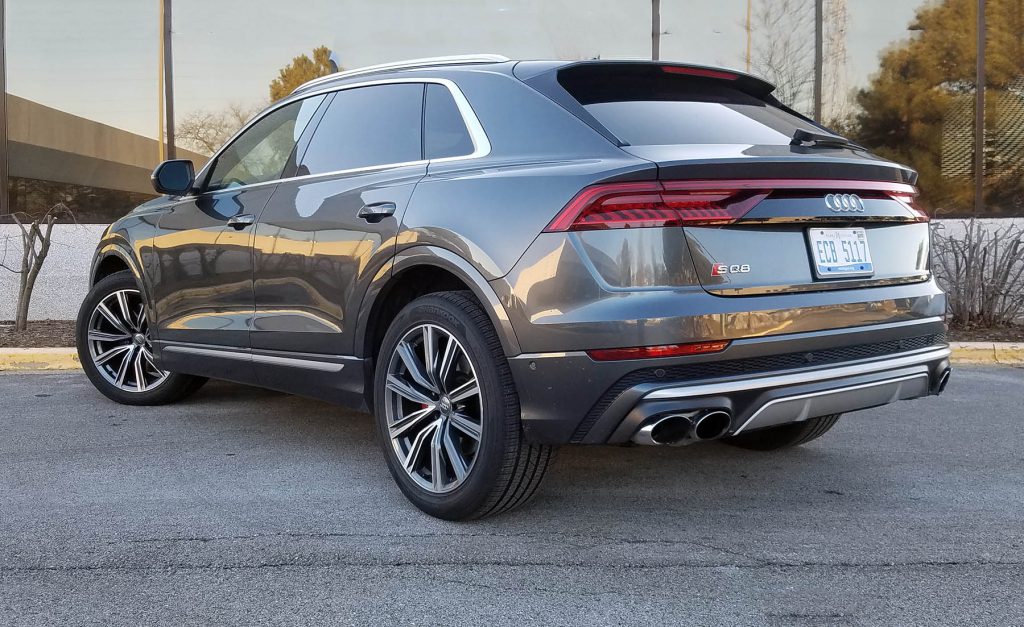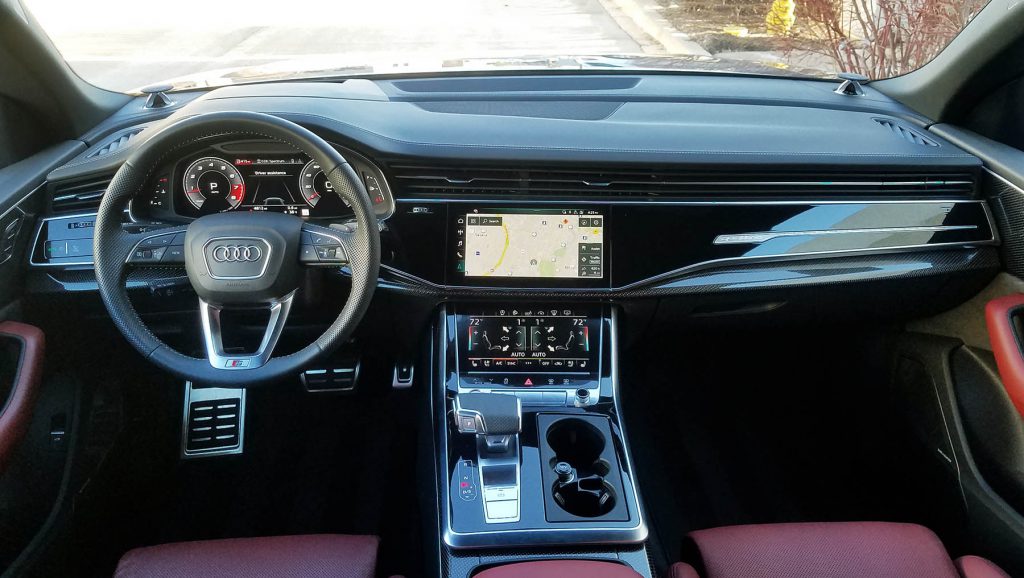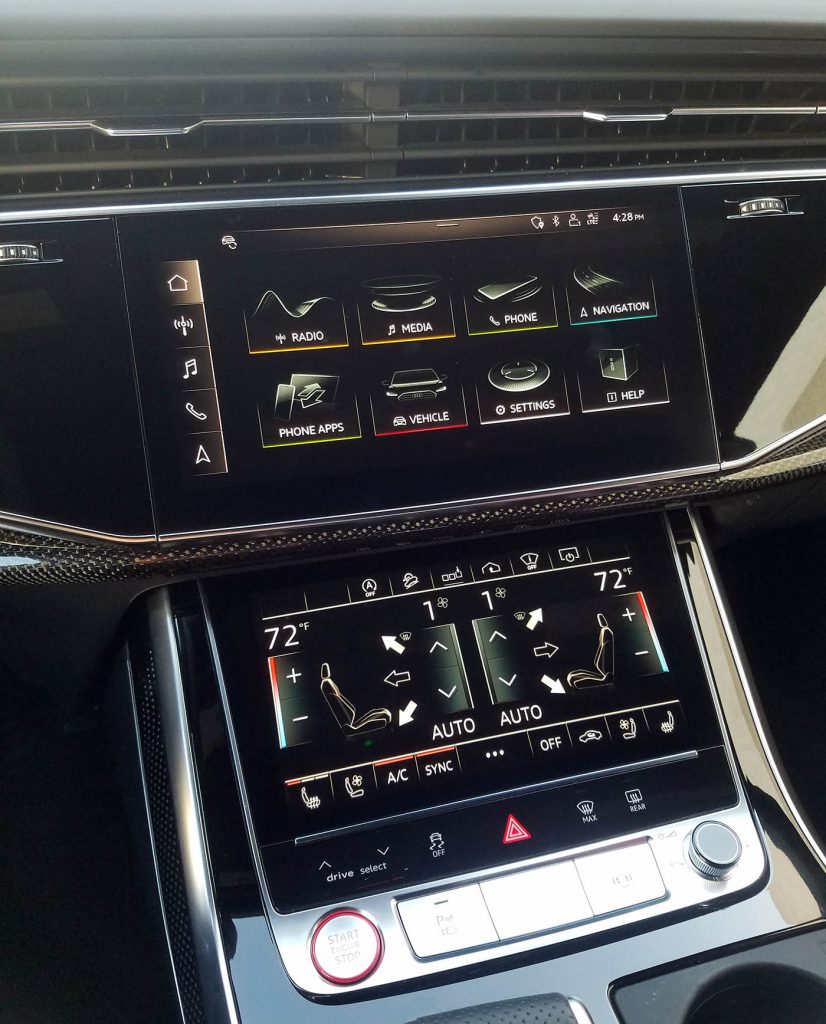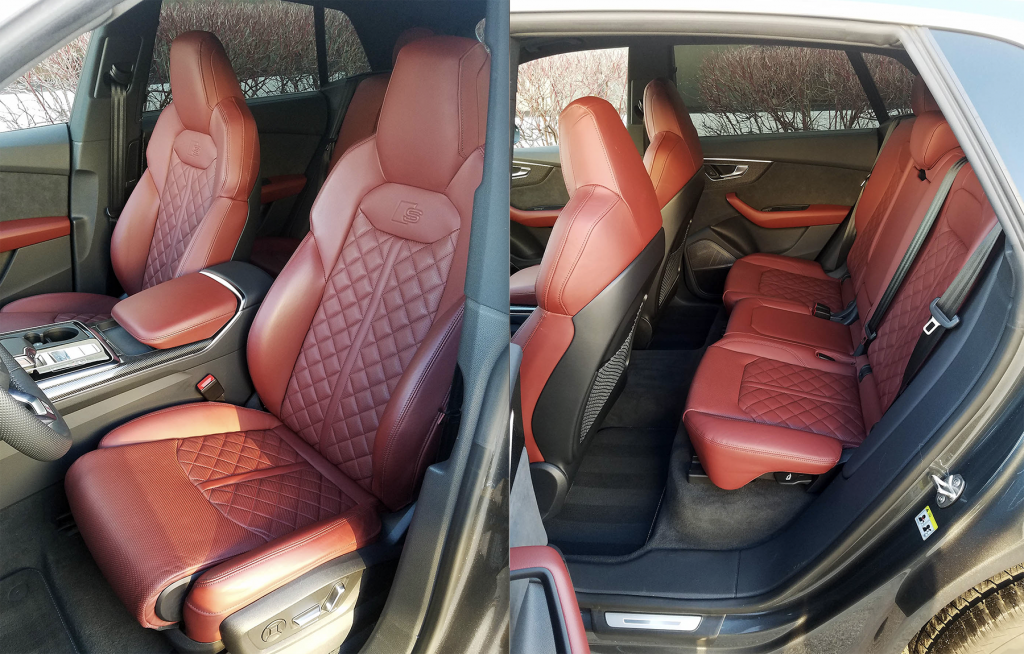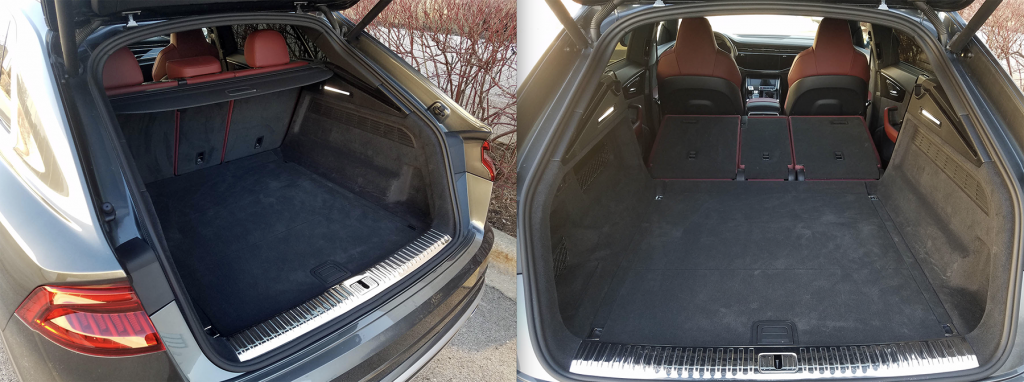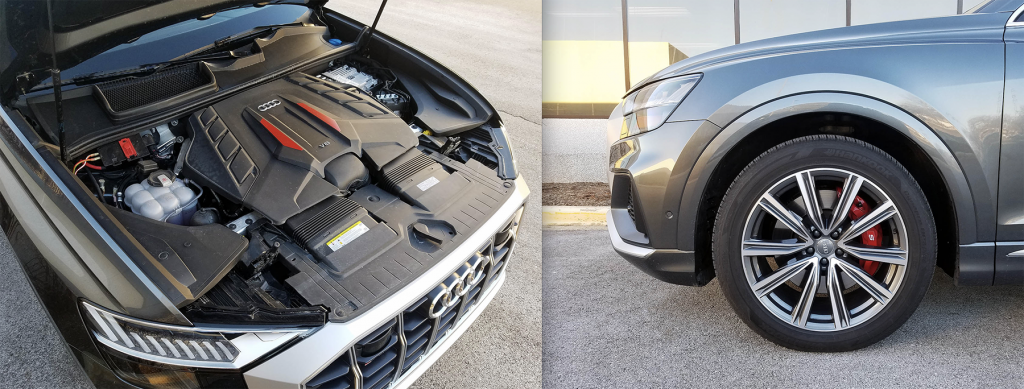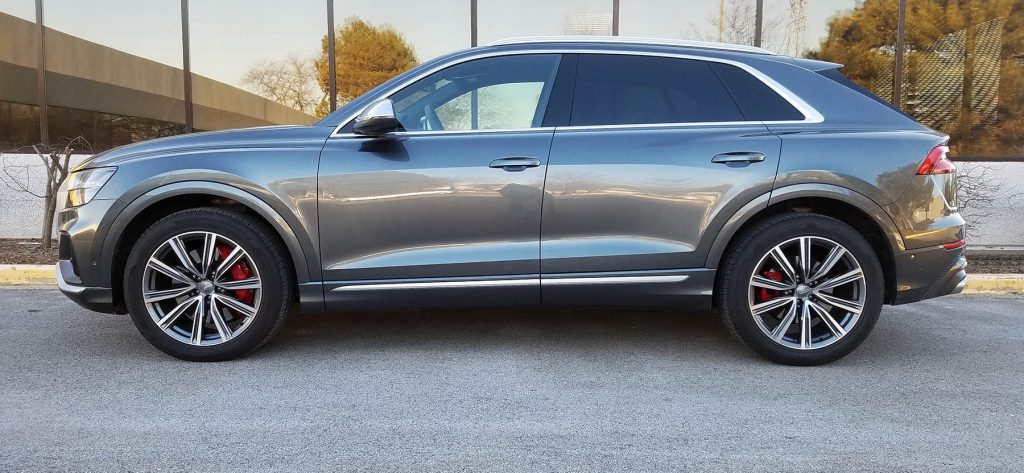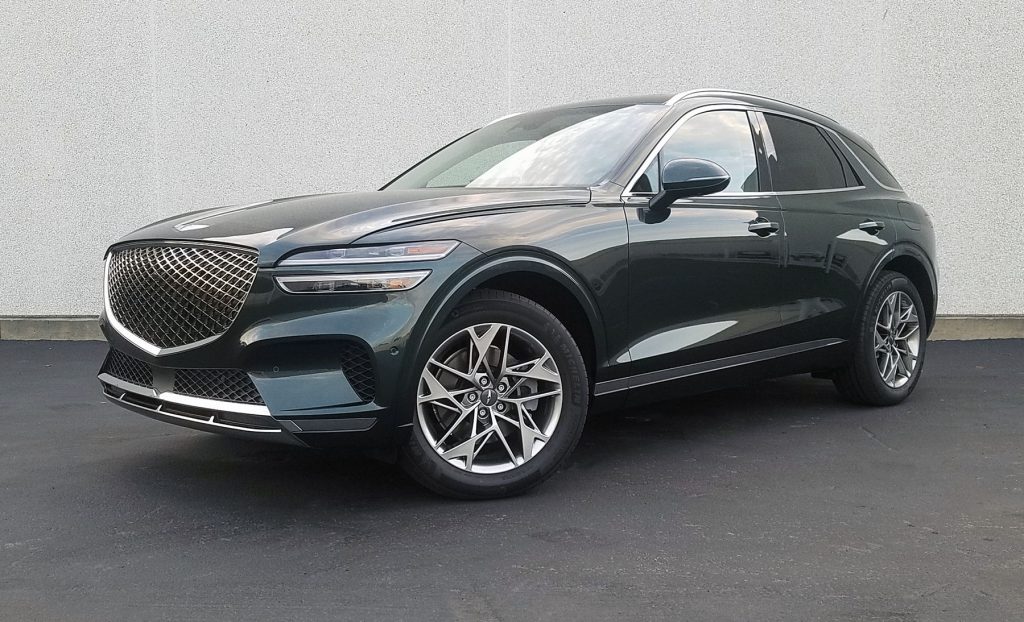
2022 Genesis GV70 2.5T AWD Advanced in Cardiff Green (A $500 option)

2022 Genesis GV70 2.5T AWD Advanced
Class: Premium Compact SUV
Miles driven: 447
Fuel used: 21.5 gallons
| CG Report Card | |
|---|---|
| Room and Comfort | B |
| Power and Performance | B |
| Fit and Finish | A |
| Fuel Economy | C+ |
| Value | A |
| Report-card grades are derived from a consensus of test-driver evaluations. All grades are versus other vehicles in the same class. Value grade is for specific trim level evaluated, and may not reflect Consumer Guide’s impressions of the entire model lineup. | |
| Big & Tall Comfort | |
| Big Guy | A |
| Tall Guy | A |
| Big & Tall comfort ratings are for front seats only. “Big” rating based on male tester weighing approximately 350 pounds, “Tall” rating based on 6’6″-tall male tester. | |
| Drivetrain | |
| Engine Specs | 300-hp 2.5L |
| Engine Type | Turbo 4-cylinder |
| Transmission | 8-speed automatic |
| Drive Wheels | All-wheel drive |
Real-world fuel economy: 20.8 mpg
Driving mix: 65% city, 35% highway
EPA-estimated fuel economy: 22/28/24 (mpg city, highway, combined)
Fuel type: Premium gas recommended
Base price: $41,000 (not including $1045 destination charge)
Options on test vehicle: Cardiff Green paint ($500), Select Package ($4000), Advanced Package ($4150)
Price as tested: $50,695
Quick Hits
The great: Posh, comfortable cabin; quietness; long list of available comfort and convenience features
The good: Respectable acceleration from 4-cylinder engine; confident, distinctive styling; competitive pricing
The not so good: Our mediocre observed fuel economy trailed EPA estimates; some control-interface quirks
More Genesis GV70 price and availability information
John Biel
Perhaps Genesis mislabeled its brand-new premium-compact SUV by calling it the GV70. It is derived from the platform of the G70 sedan and styled in the same vein. But the available engines, rotary-dial gear selector, and console dial for the infotainment system are straight out of the midsize G80 sedan and GV80 sport-utility. Maybe the newcomer ought to really be called the GV75.
Of course, there are numbers that truly are more important to shoppers and we’ll get to them by and by. What really counts is that with the GV70 Genesis has created an excellent, value-packed entry in this busy market segment.
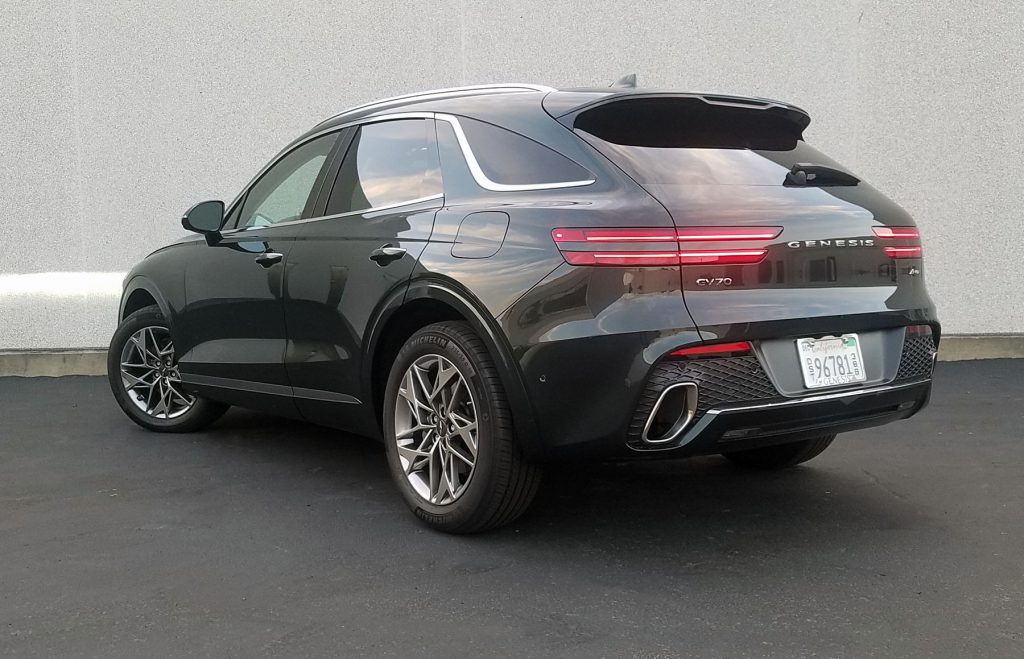
The Genesis GV70 launches for 2022 as the second crossover SUV in the growing Genesis-brand product lineup; in size and price, it slots in below the midsize Genesis GV80, which debuted for 2021.
Riding a wheelbase of 113.2 inches and ranging 185.6 inches from bumper to bumper, the 5-passenger GV70 is, respectively, 3.1 and 9.1 inches shorter in those categories than the GV80 that’s set up to carry seven in some models. Where the G70 premium-compact sedan offers the choice of a 2.0-liter turbocharged four or a 3.3-liter twin-turbo V6, the GV70 engines are a similarly aspirated 2.5-liter four and 3.5-liter V6.
All-wheel drive is standard in every GV70. Prices (with delivery) begin at $42,045 for the base 4-cylinder version and rise to $63,545 for the V6 Sport Prestige. Consumer Guide sampled a 2.5-equipped Advanced—it sits second from the top of four 4-cylinder models—with a starting price of $50,195. Only a spray of Cardiff Green paint nudged the final tab to $50,695.
Test Drive Gallery: 2021 Lincoln Corsair Reserve
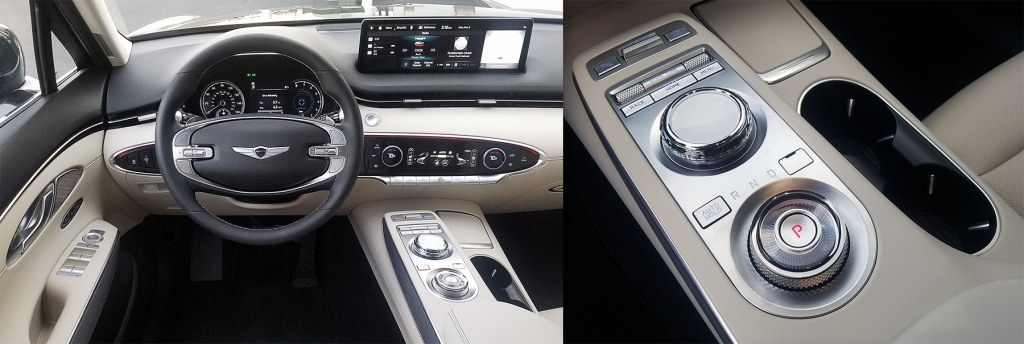
The GV70’s interior is dazzling in terms of both design and materials. The infotainment system can be controlled via a center-console dial (which is unfortunately easy to grab when you intend to use the rotary-dial gear selector mounted just aft of it) or the extra-wide, 14.5-inch high-definition touchscreen.
Typically for a Genesis, trim levels are treated as packages added to the core model. To get two steps up from the base vehicle, CG’s tester first had to absorb Select equipment (19-inch alloy wheels, panoramic sunroof, 16-speaker Lexicon premium audio, ventilated front seats, and brushed-aluminum interior accents). Then came the Advanced package with leather upholstery, heated steering wheel, interior trim with a “Waveline” pattern, surround-view monitor, blind-spot view monitor, front parking-distance warning, rear parking-collision avoidance, Remote Smart Parking Assist (to jockey the vehicle in and out of tight spaces while the driver stands outside), and advanced rear-occupant alert.
Test Drive: 2022 Genesis G70 3.3T Sport Advanced
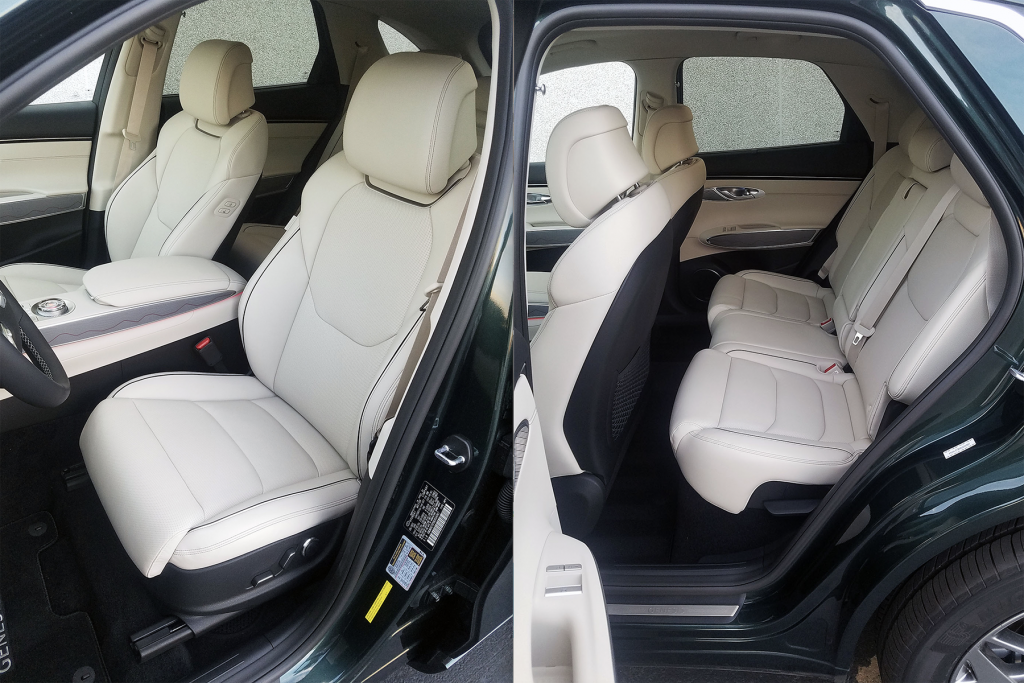
There’s ample space in the GV70’s front seats, but the rear-seat legroom and headroom can be tight for adults.
All that is the frosting on the cake. It builds on GV70 basics like LED headlights and taillights, heated exterior mirrors, heated front seats with power adjustment, dual-zone automatic climate control, front and rear 12-volt power outlets, and hands-free liftgate. Tech items include an infotainment system with 14.5-inch screen, navigation, satellite and HD radio, and Apple CarPlay/Android Auto compatibility; dual front and rear USB ports; wireless device charging; and fingerprint recognition for one-touch starting. Safety and driving assists consist of adaptive cruise control, forward collision avoidance with pedestrian and cyclist detection, lane-keeping and following assist, rear parking-distance warning, and blind-spot and rear cross-traffic monitoring.
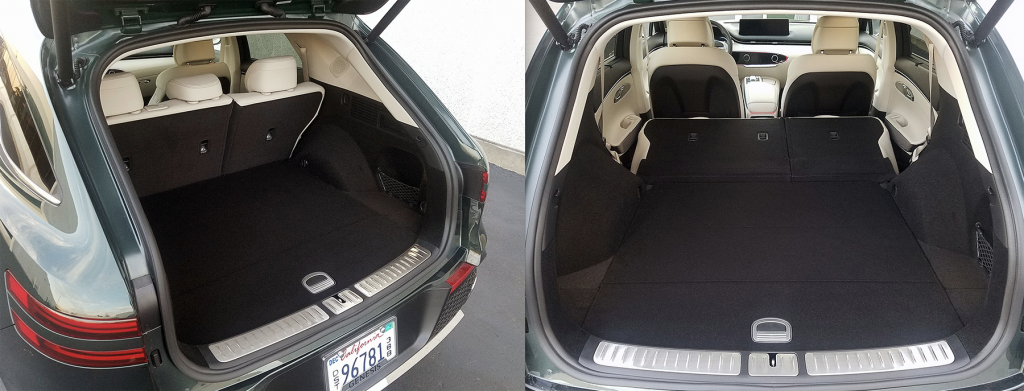
The GV70’s cargo volume is a bit better than most premium compact SUV rivals–there’s 28.9 cubic feet behind the second-row seats, which grows to 56.8 cubic feet when the second-row seat backs are folded.
The Advanced’s luxury additions fill out a cabin that’s pretty lush for the price, with lots of soft-touch material—even far down on the doors past the point at which lots of other manufacturers default to plastic. Knurled surfaces adorn the ends of the wiper and light-control stalks, steering-wheel thumb buttons, and the transmission selector dial. Metal accents brighten the doors, dash, console, and steering wheel. The big infotainment display atop the instrument panel is vibrant, easily legible, and can show two things at once (for instance radio settings and navigation map). Fortunately, it is a touchscreen, which means you don’t have to use the remote console controller—and this one reminds us a little of the Lexus Remote Touch get-up that we’ve never particularly liked. By the way, it’s uncanny how easy it is to reach this round controller when you really want the trans selector. Easy-working temperature dials mix with numerous buttons for climate control.
Quick Spin: 2021 Genesis GV80 3.5T Advanced
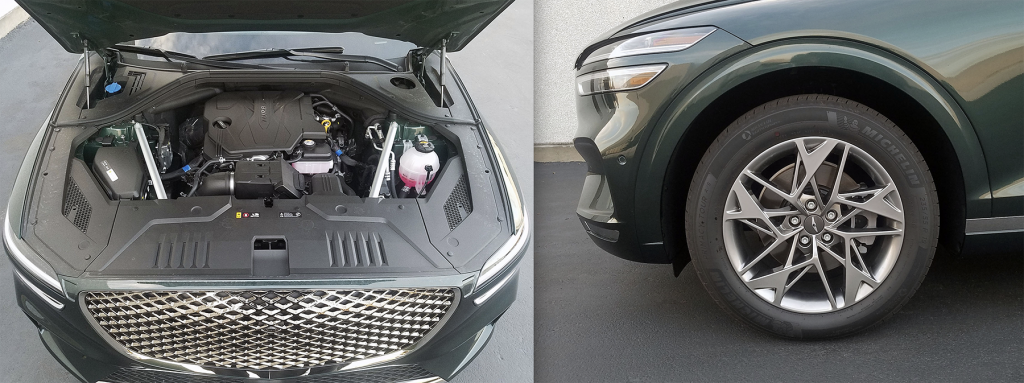
A 300-hp turbocharged 2.5-liter 4-cylinder is GV70’s base engine; a 375-hp turbo 3.5-liter V6 is also available. Choosing the Select package upgrades the standard 18-inch wheels to 19-inch alloys.
Comfortable seats welcome four adults. The front row is roomy; the second row slightly less so—but it would be wrong to call it cramped. Headroom is quite good, too, and driver sightlines are fairly unobstructed. Personal-item storage is accomplished in a large glove box, decent covered console bin, door pockets with bottle holders, and net pouches behind the front seats. Exposed cup holders are found in the console and the pull-down center armrest in the rear seat.
Overall cargo space is good, even if the rakish rear shape might stand in the way of certain loading options. The cargo bay holds at least 28.9 cubic feet of stuff. Drop the 60/40-split rear seats, which fold absolutely flush with the load floor, and a further 28 cubic feet open up.
Quick Spin: 2021 Volvo XC60 Recharge
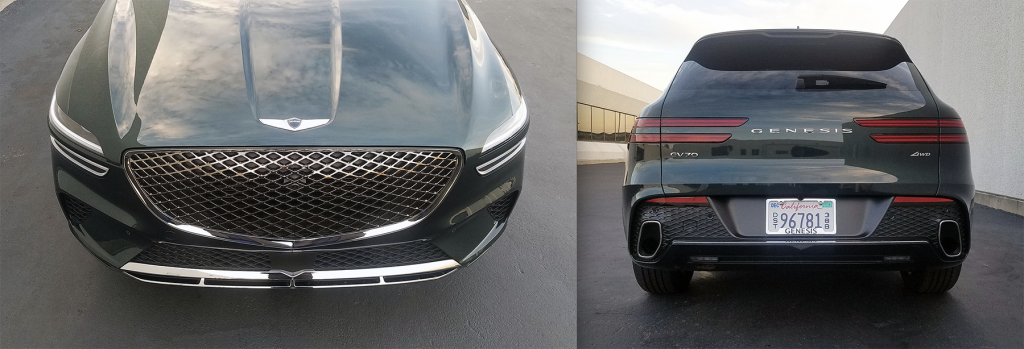
The GV70’s attractively athletic body shape is highlighted by nicely executed styling details, such as the Genesis brand’s signature shield-shaped grille and slim “Quad Lamp” LED headlights and taillights.
The 2.5 engine, rated at 300 horsepower and 311 lb-ft of torque, is attached to an 8-speed automatic transmission. This powerteam is an eminently competent pairing for moderately lively performance that gets a little zestier (and a touch louder) in “Sport” mode, with its quicker throttle response and more patient upshifts. Still, you can happily cruise all day in subtler “Comfort” mode. “Eco” and “Custom” settings are available as well. We wish the GV70 was a little stingier with gas—premium, wouldn’t you know. EPA ratings are 22 mpg in city driving, 28 on the highway, and 24 combined. When this driver put 81.5 miles on the test vehicle—with 69 percent city-style operation—it returned just 20.3 mpg.
With a suspension that’s a retuned version of the G70’s front struts and multilink rear, ride quality is luxury-brand good, with fine bump absorption and isolation from road noise. Steering is nicely weighted and responsive in the Comfort setting. Maybe the more resistant Sport-mode steering is a help on twisty roads where you wouldn’t want to overdo inputs, but in lazier urban-expressway driving it just feels heavy. Brakes are easy to modulate and predictably reliable.
The inaugural GV70 finds its strength in numbers—the number of things it does right. That would be true no matter what number Genesis assigned to it.
First Spin: 2022 Infiniti QX55
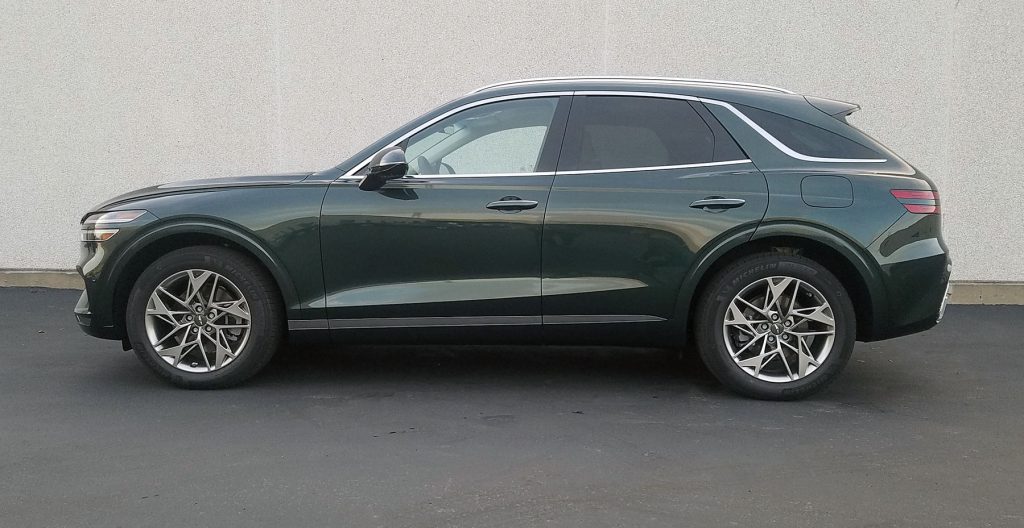
The new-for-2022 Genesis GV70 might be the Genesis brand’s most impressive vehicle so far; it delivers an athletic driving character, attractive styling inside and out, and a high level of luxury and available technology features, all at prices that handily undercut its primary European luxury-brand rivals.
Listen to the Car Stuff Podcast
Genesis GV70 2.5T Advanced Gallery
Click below for enlarged images.
Genesis GV70 2.5T Advanced
Genesis GV70 2.5T Advanced
